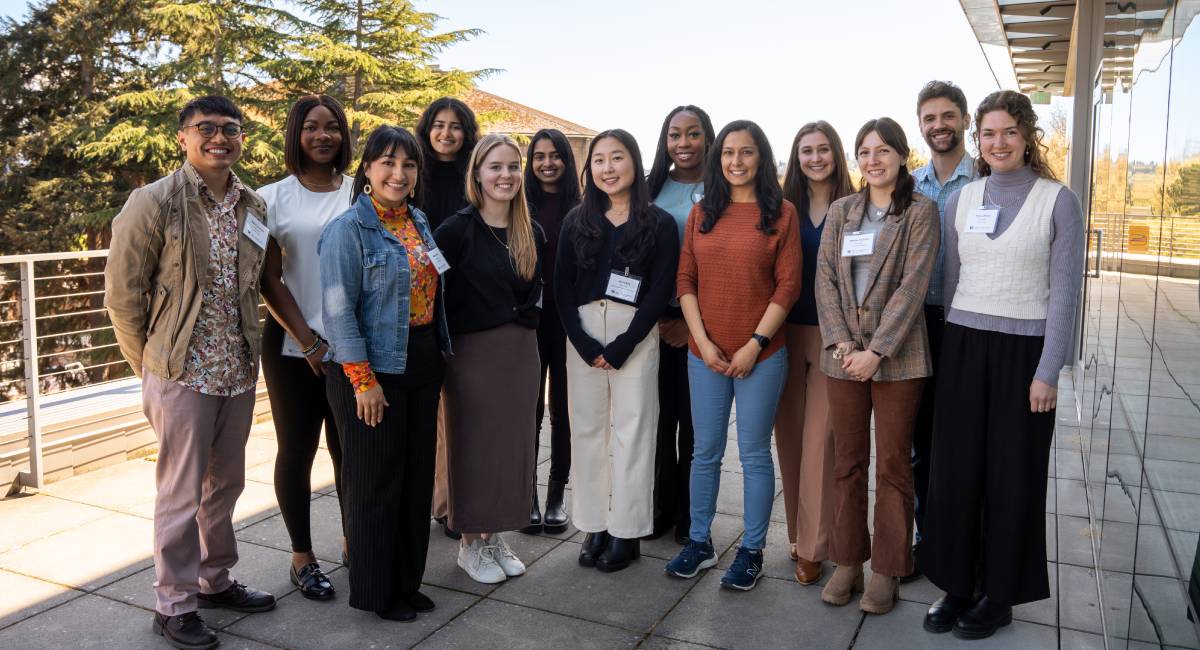
The 26th annual MPH Practicum Symposium & Reception
was held on Wednesday, April 17, 2024
The MPH Practicum is a field-based experience that allows MPH students to tackle real-world public health challenges. The annual MPH Practicum Symposium & Reception brings together students, families, faculty, site supervisors, donors, agency and academic leaders, and more every year to celebrate students’ practice work, faculty mentorship, and community partnership.
Symposium Presentations, Posters and Slides
View Presenter, Site, and Project Information
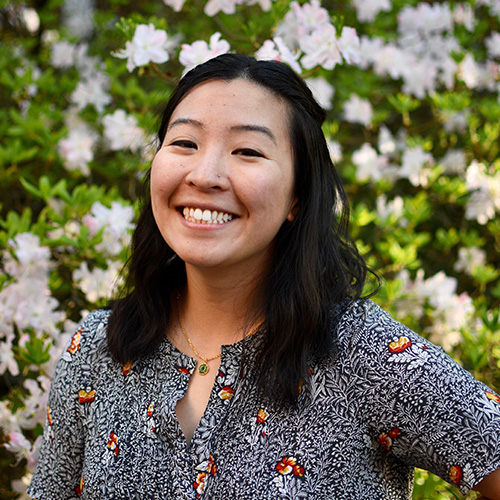
Amanda Li
akl1997@uw.edu
Communication Tools to Streamline PrEP Delivery in Maternal and Child Health (MCH) Clinics in Western Kenya
PRACTICUM SITE: Global Center for Integrated Health of Women, Adolescents, and Children (Global WACh)
SITE SUPERVISOR: Julia Dettinger
DEPARTMENT: Global Health
FACULTY ADVISER: Anjuli Wagner
I am a second-year MPH student in the Department of Global Health with interests and experience in health communications, health equity, and program management. My practicum was with the PrEPARE (PrEP in Pregnancy, Accelerating Reach & Efficiency) Study, a collaboration between Kenyatta National Hospital and the University of Washington’s Global Center for Integrated Health of Women, Adolescents, and Children (Global WACh). PrEPARE is an implementation science study that aims to pilot and evaluate four bundles of strategies for optimized PrEP delivery in maternal and child health clinics (MCH) in Western Kenya. I worked with the PrEPARE Team to develop materials for the fourth bundle: PrEP health talks, communication aids, and PrEP dispensing in MCH. Following engagement with MCH healthcare workers on the tools they prioritized, I designed Job Aids about PrEP Eligibility and Indications, Initiation, Continuation and Discontinuation, and Frequently Asked Questions (FAQ), as well as a Health Talk Flipbook for HIV and PrEP Counseling sessions.

Amelia Wilkerson
agw26@uw.edu
Reproductive Healthcare Delivery Quality Improvement
PRACTICUM SITE: MedGlobal
SITE SUPERVISOR: Denisse Pareja Valarezo
DEPARTMENT: Global Health
FACULTY ADVISER: Mary Anne Mercer
I am a second-year MPH candidate in the Department of Global Health, passionate about violence prevention, health, and human rights. The majority of my research includes topics surrounding reproductive, indigenous, and environmental health, as well as rights and justice. My practicum project with MedGlobal included the development of a survey to determine what (if any) facilitators and barriers influenced MedGlobal’s capacity to deliver emergency obstetric and newborn care (EmONC) in Yemen. A report was then conducted summarizing the activities of our project, including health system strengthening recommendations that were intended to be used to improve the delivery of EmONC in MedGlobal-supported health facilities in Yemen.
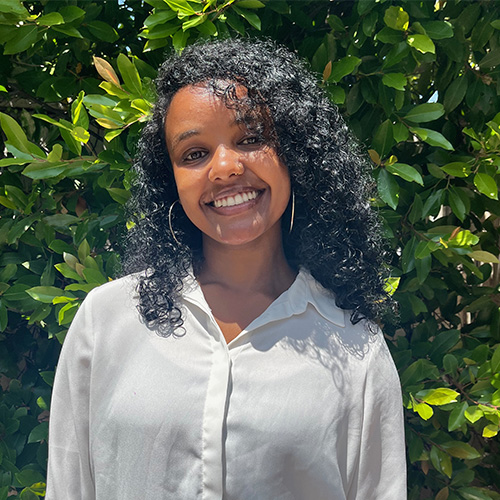
Betelhem Muno
bmuno@uw.edu
Using the Rainier Valley Midwives' Perinatal Data Registry to Share Meaningful, Contextualized Information on Birthing Experiences of Individuals in Our Communities
PRACTICUM SITE: Rainier Valley Midwives
SITE SUPERVISOR: Jodilyn Owen
DEPARTMENT: Epidemiology
FACULTY ADVISER: Dr. Brandon Guthrie
I am a second-year MPH Epidemiology student with a focus on maternal and child health at the University of Washington. My interest lies in maternal and child health, HIV/AIDS, healthcare access, and equitable structural changes. I hope to develop skills that will allow me to work in the U.S. and globally to support Black communities. My practicum with Rainier Valley Midwives (RVM), an organization that provides pregnancy care and reproductive health services to Black, Indigenous, and People of Color (BIPOC) families in the Greater Seattle Area, involved establishing a new database, Perinatal Data Registry (PDR), by transferring patient data from their current client databases (Charm and Client Care). Through a report and presentation, I shared my findings on patient experiences and recommendations for their internal data collection process.

Cecilia Msogoya
ctm74@uw.edu
Secondary Growth Analysis and Dissemination of Findings from the Mama Aweza Trial
PRACTICUM SITE: Global WACh
SITE SUPERVISOR: Kirkby Tickell
DEPARTMENT: Nutrition
FACULTY ADVISER: Anne Lund
I'm Cecilia Msogoya, a second-year MPH candidate in the Nutritional Sciences Program at the University of Washington. My practicum focused on the secondary growth analysis and dissemination of findings from the Mama Aweza Trial, under the guidance of Kirkby Tickell and staff at the Global Center for Integrated Health of Women, Adolescents, and Children. The trial, aimed at addressing the early identification of childhood wasting in Kenya, involved the Maternally Administered Malnutrition Monitoring System (MAMMS) supported by SMS platforms. My role included data management and analysis, developing dissemination materials, and conducting a secondary analysis to assess the intervention's impact on children's growth. This work has equipped me with invaluable skills in research and public health communication.
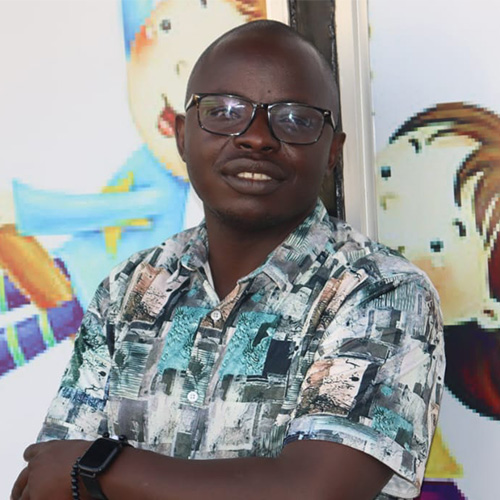
Dismas Ouma
couma@uw.edu
Sources of Information, Knowledge, and Gaps Regarding Sexually Transmitted Infections (STIs) Among Adolescents in Kenya
PRACTICUM SITE: Kenyatta National Hospital
SITE SUPERVISOR: Irene Njuguna
DEPARTMENT: Global Health
FACULTY ADVISER: Anjuli D. Wagner
I am a second-year MPH candidate in the Department of Global Health. My primary career goal is to improve adolescent health in low and middle-income countries. I am particularly interested in understanding and addressing adolescent sexual health needs, including those related to STIs, HIV, contraceptives, and mental health. For my practicum project, I worked with the Sauti Ya Vijana project at Kenyatta National Hospital, Nairobi, Kenya. The Sauti ya Vijana project explored and compared the utility of virtual platforms such as WhatsApp and Zoom in conducting behavioral research among adolescents and young adults in low and middle-income countries. My role was to analyze the qualitative data and prepare a policy brief on sources of information, knowledge, and gaps regarding sexually transmitted infections (STIs) among adolescents in Kenya. We will present this policy brief to the Ministry of Health Kenya Directorate of Preventive and Promotive Health Services. We hope that this policy memo will provide some insight into the existing sex education curriculum in Kenya and identify potential adaptations to better fit adolescent needs.
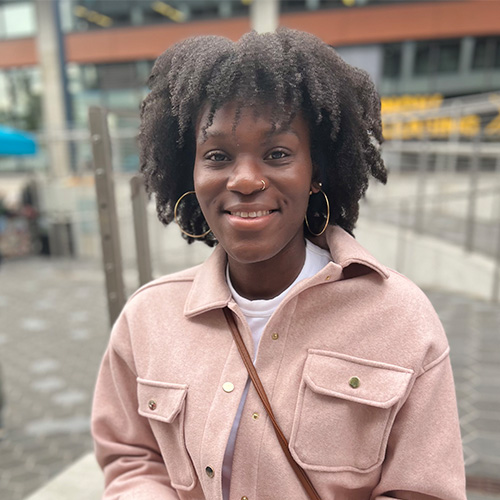
Ekua-Yaaba Monkah
monkae@uw.edu
Black Perinatal Health in Washington State
PRACTICUM SITE: Cardea Services
SITE SUPERVISOR: Olivia Lutz
DEPARTMENT: Epidemiology
FACULTY ADVISER: Daniel Enquobahrie
I am a second-year MPH candidate in the Epidemiology (Maternal and Child Health) track. My interests include Black maternal and child health equity, reproductive justice, and community-based participatory research. For my practicum, I served as a Social Impact and Evaluation intern at Cardea in Seattle, Washington. Cardea is a national women of color-led organization that partners with the community to co-create solutions that achieve health equity. I collaborated with the Black Perinatal Health (BPH) initiative group to conduct a literature review of peer-reviewed and gray literature to understand the landscape of BPH in the U.S. and Washington state. I developed a summary report of key findings from my literature review that I will be presenting at an upcoming thought partner group meeting in February. This project helped me embrace the power of community-driven solutions and have hope for the future of Black well-being.
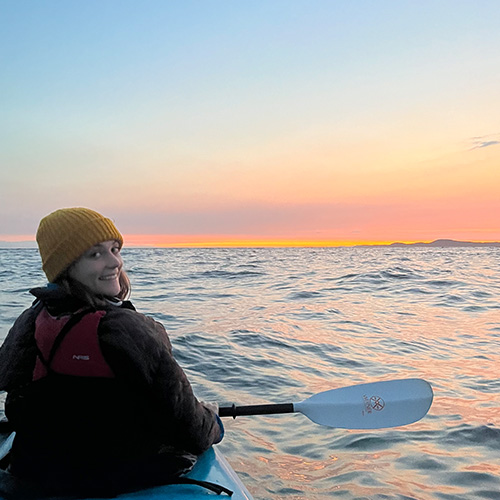
Emma Sears
esears3@uw.edu
Newborn Bloodspot Screening Site Visit Protocol Implementation
PRACTICUM SITE: Alaska Department of Health Newborn Bloodspot Screening Program
SITE SUPERVISOR: Lorrie Folmar
DEPARTMENT: Public Health Genetics
FACULTY ADVISER: Daniel Promislow
I am a second-year MPH Genetics student. I am passionate about increasing access and education surrounding genetics services, specifically within marginalized communities. I worked with the Alaska Department of Health, Division of Public Health for my practicum with their Newborn Bloodspot Screening Program. I gained experience in interdisciplinary collaboration, leading meetings with ten other State Newborn Bloodspot Screening Departments. I integrated best practices from other states to implement site visits to birthing sites in Alaska. My objective was to establish a protocol for site visits to all birthing locations in the state to improve the efficiency of delivering newborn screening and processing of samples. To ensure community input, I interviewed staff from all 19 birthing facilities. I developed a site visit protocol, educational PowerPoint, and birthing site survey to enhance newborn screening practices in Alaska today.
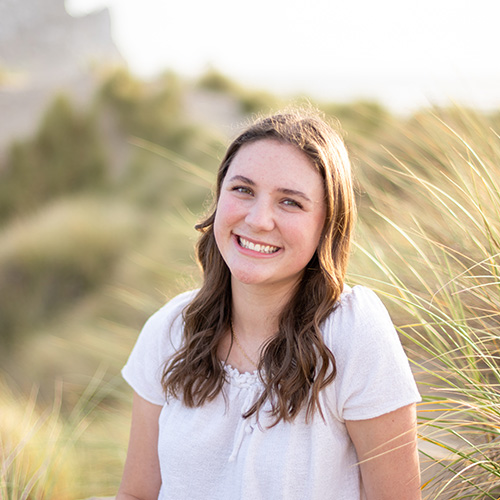
Erika Marts
ekmarts@uw.edu
Case Study of Intentional Self-Poisoning Among Teen Callers
PRACTICUM SITE: The Washington Poison Center
SITE SUPERVISOR: Meghan King, MPH & Alex Sirotzki, MPH
DEPARTMENT: Epidemiology
FACULTY ADVISER: Julia Hood, PhD, MPH
I am a second-year MPH student in the Department of Epidemiology. My interests in injury prevention and adolescent health led me to work with the Washington Poison Center (WAPC) for my practicum project. During my project, I conducted a qualitative analysis using call recordings of intentional exposure calls from teens aged 13-18. I used the results from my analysis to identify common themes during calls, provide recommendations for call-taking protocol for teen callers, and create health education materials intended for dissemination among a teen audience. This project helped to contextualize basic information generated from electronic medical records and inform how WAPC can improve follow‐up for calls made about intentional exposures among this age group.
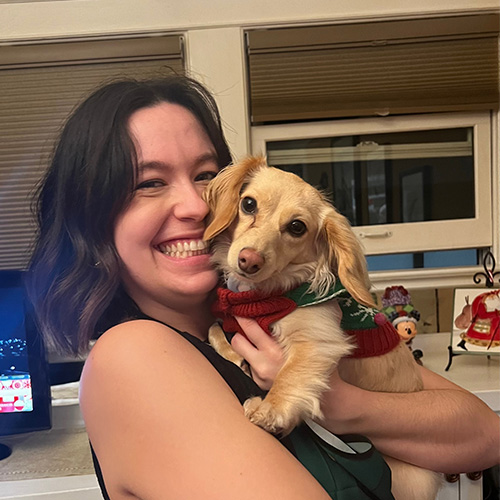
Joelle Richardson
jrichr25@uw.edu
Women and Children's Health in Yemen
PRACTICUM SITE: Yemen Relief and Reconstruction Foundation
SITE SUPERVISOR: Aisha Jumaan
DEPARTMENT: Health Systems and Population Health
FACULTY ADVISER: Vivian Tsu
I am a second-year MPH candidate in the Department of Health Services and Population Health. My public health interests include maternal and child health, along with reproductive and behavioral health access. I partnered with MPH candidate Morgan Bergerud to conduct a literature review and develop a concept note in partnership with the Yemen Relief and Reconstruction Foundation (YRRF), an organization that aims to bring advocacy and awareness to the ongoing humanitarian crisis in Yemen. Our literature review aimed to report on the antenatal, postnatal, and infant health crisis that has been an outcome of the ongoing war in Yemen. Our concept note, "Improving Breastfeeding Practices and Identification of Infant Malnutrition in Ibb and Sana’a Governorates," promotes health education for proper breastfeeding and recognition of infant distress practices.

Julia Kizis
kizisj@uw.edu
Yemen Maternal Health Project
PRACTICUM SITE: MedGlobal
SITE SUPERVISOR: Denisse Pareja
DEPARTMENT: Health Systems and Population Health
FACULTY ADVISER: MaryAnne Mercer
I am a second-year MPH student in the HSPOP department’s policy track. My interest in quality improvement for health systems drew me to this practicum project. Alongside my teammates, I worked with MedGlobal, an international NGO that provides emergency response and health programs in disaster-affected and low-resource settings, to complete a quality improvement project. The project was intended to improve the delivery of emergency obstetric and newborn care (EMONC) services and health outcomes for the women and infants that receive care from the organization’s health facilities in Yemen. Practicum activities consisted of conducting a literature review, developing and implementing a survey among health facility personnel, producing a report of findings intended for internal organizational use, and presenting to our HSERV 572 class.
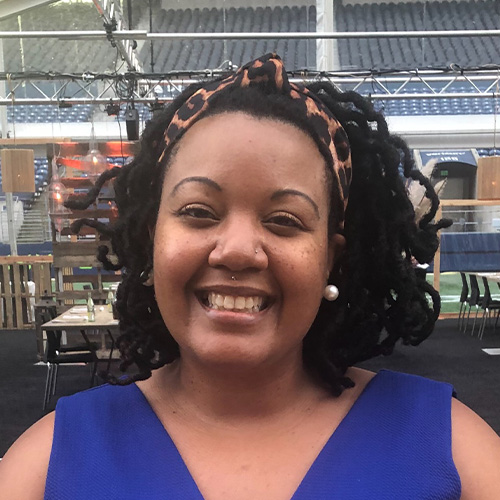
Kaletra Welch
kkwelch@uw.edu
Mapping Maternal Mental Health Resources in Seattle/Tacoma
PRACTICUM SITE: UW School of Public Health, Department of Global Health
SITE SUPERVISOR: Dr. Rachel Chapman
DEPARTMENT: Global Health
FACULTY ADVISER: Dr. James Pfeiffer
I am a second-year MPH-Global Health candidate interested in advocacy and policies that improve maternal health outcomes, specifically for women across the African diaspora. For my practicum, I am working with one of the Population Health Initiative's Tier 3 Pilot Programs entitled "Healing Heart and Soul: Decreasing Maternal Racial/Ethnic Health Disparities through Home-Based Monitoring of Blood Pressure, Stress/Depression, and Safety." My practicum project will assess maternal mental health in Seattle/Tacoma. It will identify services available as well as gaps that exist in maternal mental health services in the Seattle/Tacoma areas through online research of services available, identifying funding available for creating or expanding maternal mental health services, and conversations with various sectors of the community to understand trends in services, gaps that exist, and barriers to accessing maternal mental health services.
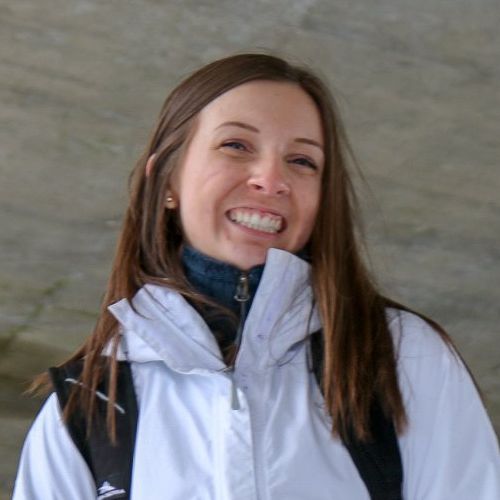
Makena Chandra
chandm3@uw.edu
Adding GAMT Deficiency and ARG1-D to the WA State Newborn Screening Panel
PRACTICUM SITE: Washington State Newborn Screening Lab, Shoreline, WA
SITE SUPERVISOR: John Thompson and Michael Katsuyama
DEPARTMENT: Public Health Genetics
FACULTY ADVISER: Joon-Ho Yu
Working with the Washington State Newborn Screening Program (NBS), I completed a benefit-cost analysis for both GAMT deficiency and Arginase 1 deficiency (ARG1-D). We began by scouring the literature for these two genetic disorders, as well as consulted with experts at other state's newborn screening programs and clinicians at Seattle Children's. Using this information, we constructed a decision tree for each to illustrate the differences in cost between a No Screening Model and proposed Screening Model. These decision trees resulted in a benefit-cost ratio. The models were then presented to the technical advisory committee (TAC) in September 2023 for review. In October 2023, I presented with the NBS team to the WA State Board of Health, where both disorders were approved to be added to the newborn screening panel moving forward.
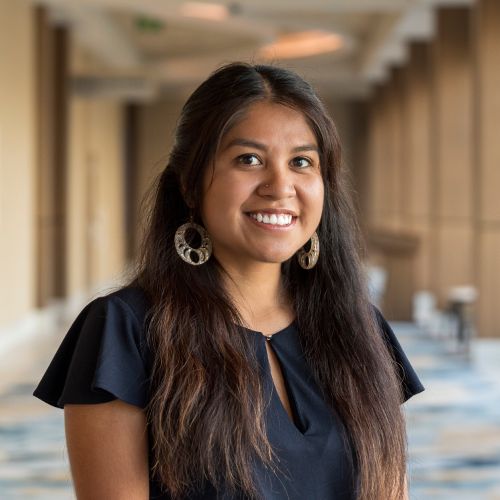
Marina Van Pelt
mvanpelt@uw.edu
2023 Canoe Journey: Climate Change & Healing for Indigenous Youth
PRACTICUM SITE: Seven Directions Indigenous Public Health Institute
SITE SUPERVISOR:Maya Magarati
DEPARTMENT: Health Systems and Population Health
FACULTY ADVISER: Myra Parker
I am a second-year MPH student at the University of Washington Health Systems and Population Health Department (Health Systems and Policy concentration). I am interested in community-based participatory research while honoring Indigenous knowledge, strengthening tribal and urban Indian public health systems, and cultivating innovation and collaboration. For my practicum project, I collaborated with Seven Directions Indigenous Public Health Institute on a new pilot project titled 2023 Canoe Journey: Climate Change & Healing for Indigenous Youth. Seven Directions, Inchelium Language and Culture Association, and Children of the Setting Suns Production are interested in exploring how annual Canoe Journeys strengthen indigenous youth’s cultural connectedness, resiliency, mental health, and climate leadership. The project collected both qualitative and quantitative data from indigenous youth participating in the journeys. The results and findings will contribute to ongoing efforts at community partner sites.
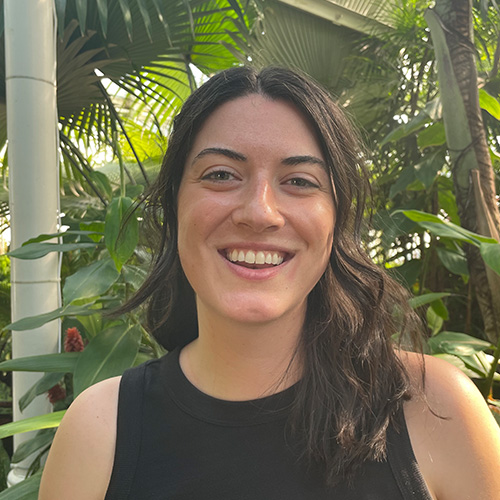
Morgan Bergerud
bergerud@uw.edu
Women's and Children's Health in Yemen
PRACTICUM SITE: Yemen Relief and Reconstruction Foundation
SITE SUPERVISOR: Aisha Jumaan
DEPARTMENT: Health Systems and Population Health
FACULTY ADVISER: Vivien Tsu
I am a second-year MPH candidate in Health Services and Population Health. I am passionate about maternal and child health, and vaccination education and equity, specifically related to women's health and cervical cancer. For my practicum, I partnered with MPH candidate Joelle Richardson to conduct a literature review. We worked with the Yemen Relief and Reconstruction Foundation, an organization that works to increase awareness of the humanitarian crisis in Yemen as well as support funding and reconstruction efforts in the country. We report on the health effects of the ongoing war in Yemen on maternal and child health. The review was titled 'A Scoping Review of Antenatal, Postnatal, and Infant Health in Yemen: Current State and Potential Interventions,' and was prepared along with a concept note presenting education to increase breastfeeding knowledge and recognition of infant distress as a potential intervention to increase maternal and infant health in Yemen.
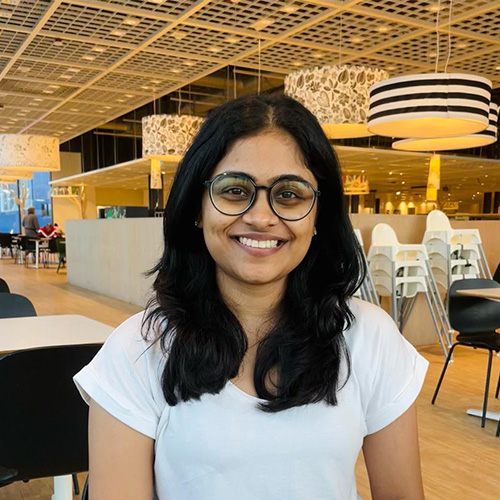
Niha Malla
niha96@uw.edu
Patient Safety Learning Laboratory - Neonatal Transport
PRACTICUM SITE: Seattle Children's Hospital, ICU Administration
SITE SUPERVISOR: Rachel Umoren
DEPARTMENT: Epidemiology
FACULTY ADVISER: Daniel Enquobahrie
As a second-year MPH epidemiology student, I have been working on an exciting project with the Patient Safety Learning Laboratory's Neonatal Transport team. Our mission is to enhance patient safety for critically ill newborns during medical transport by collecting and analyzing diverse medical data. To achieve this, I am establishing a REDCap database to streamline data collection, storage, and security. This platform offers user-friendly data entry as well as robust data export capabilities for analysis. My specific role involves setting up this customized REDCap system, integrating a formal dictionary to standardize terminology, and preparing reports on our data management processes. Through this project, I am gaining invaluable experience in public health informatics, neonatal health, and quality improvement strategies. I look forward to presenting the database at the upcoming symposium to demonstrate its capabilities and share insights that can inform best practices for safe neonatal transport. Overall, this experience has deepened my passion for applying data-driven approaches to address pressing health issues.
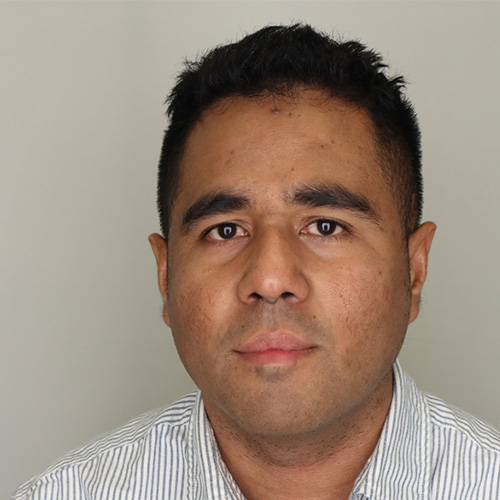
Nuno Alberto de Jesus Ximenes
nunox@uw.edu
Strengthening Adolescent SRH and Rights in the Eastern Caribbean
PRACTICUM SITE: University of Washington, International Training and Education Center for Health (I-Tech)
SITE SUPERVISOR: Natalie Irving-Mattocks
DEPARTMENT: Global Health
FACULTY ADVISER: MaryAnne Mercer
I obtained my bachelor’s degree in Medicine in 2018 from the National University of Timor-Leste. Currently, I am a second-year MPH student in the Department of Global Health, and I am also enrolled in the Global WACh certificate program. Upon joining the C-TECH Grant Proposals team with a focus on sexual reproductive health, my role included conducting a literature review to identify health disparities and establish priorities aimed at enhancing community health in the Eastern Caribbean, with a particular emphasis on advancing maternal and adolescent reproductive health and rights services. Through close collaboration, I have contributed to shaping the comprehensive framework of our proposal, actively participating in outlining key objectives, devising effective strategies, and envisioning anticipated outcomes. This has strengthened the foundation of the initiative and strategically positioned us to address maternal and adolescent health-related issues. With a targeted approach, our goal is to foster lasting improvements and positively impact the well-being of the community through evidence-based and community-centric strategies.
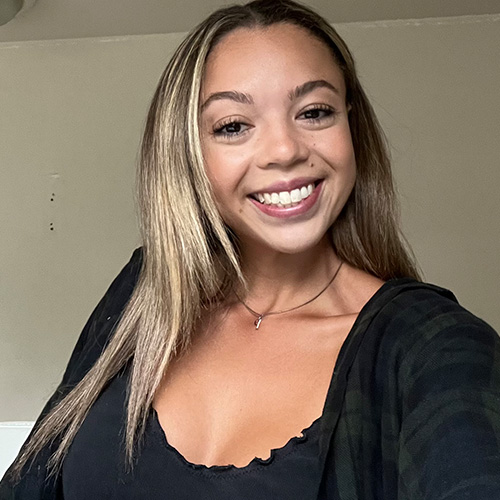
Peyton Smith
smithp22@uw.edu
Reproductive Healthcare Delivery and Quality Improvement in Yemen
PRACTICUM SITE: MedGlobal
SITE SUPERVISOR: Denisse Pareja Valarezo
DEPARTMENT: Health Systems and Population Health
FACULTY ADVISER: MaryAnne Mercer
I am a second-year MPH student in the Department of Health Systems and Population Health. I have a strong interest in improving equitable and comprehensive neonatal healthcare across a variety of community and clinic settings. I worked alongside MedGlobal, an international NGO that provides emergency response and health programs in disaster-affected and low-resource settings, to complete a quality improvement project. This project aimed to improve maternal and infant health outcomes by analyzing the facilitators and barriers to quality care in EMONC clinics in Yemen. The practicum deliverables included a literature review, developing and analyzing a survey among health personnel, and producing a written report of findings intended for organizational use.
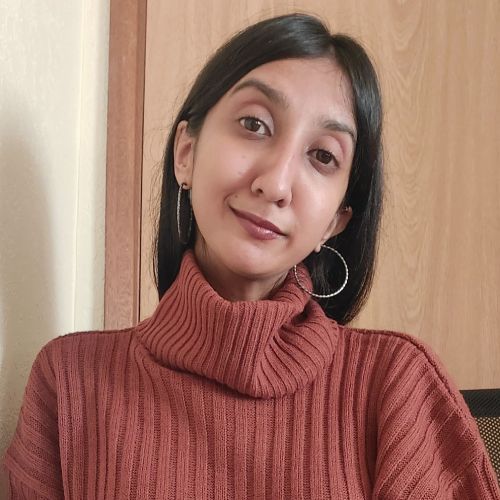
Pooja Ayachit
payach12@uw.edu
Breaking Barriers A Comprehensive Exploration of Women’s Access to Healthcare in Afghanistan under Taliban Rule
PRACTICUM SITE: Porsesh Policy Research Institute
SITE SUPERVISOR: Ehsan Shayegan
DEPARTMENT: Epidemiology
FACULTY ADVISER: Dr. Christopher Li
My name is Pooja Ayachit, and I'm a graduate student in the UW School of Public Health. As a graduate student in the Department of Epidemiology, specializing in data science within healthcare and public health, I had the opportunity to work with Porsesh Policy and Research Institute (PR) for my practicum. This role allowed me to bring my expertise as a data analyst and epidemiologist to a project focused on Afghanistan's public health challenges post-Taliban rule. At PR, I was deeply involved in analyzing the healthcare situations affecting women and children, utilizing both quantitative and qualitative data to evaluate Afghanistan's healthcare infrastructure. My work contributed to a comprehensive policy memo that provided data-driven insights and solutions to our stakeholders. This practicum was a valuable experience in understanding the complexities of healthcare in a challenging context and the importance of ethical, data-driven policymaking in addressing such critical issues.
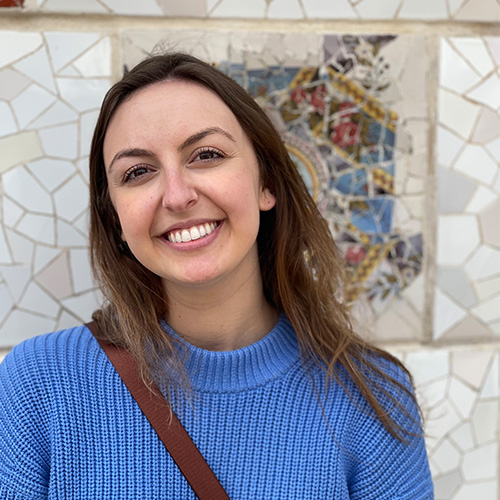
Sandra McAteer
smcate@uw.edu
Medicaid and Perinatal Mental Health Landscape Assessment
PRACTICUM SITE: Perinatal Mental Health & Substance Use Education, Research & Clinical Consultation (PERC) Center
SITE SUPERVISOR: Jamie Adachi
DEPARTMENT: Epidemiology
FACULTY ADVISER: Daniel Enquobahrie
I am a second-year MPH student in Epidemiology on the Maternal and Child Health track. I am interested in many aspects of health and wellbeing for children and pregnant people. For my practicum experience, I worked with the UW Perinatal Mental Health and Substance Use Education, Research, and Clinical Consultation (PERC) Center. I assisted on an assignment that examined different perinatal mental health services available to pregnant people insured by Medicaid in the United States. Informed by a literature review and information from the Policy Center for Maternal Mental Health, we created two surveys to distribute to Medicaid managed care organizations (MCOs) and non-governmental organizations in select states observed to be performing best in the country. We collected information about program type, member criteria, available services (including case management, duration of eligibility, approaches to screening and identifying perinatal mood and anxiety disorders), and any available outcomes or evaluation summaries.
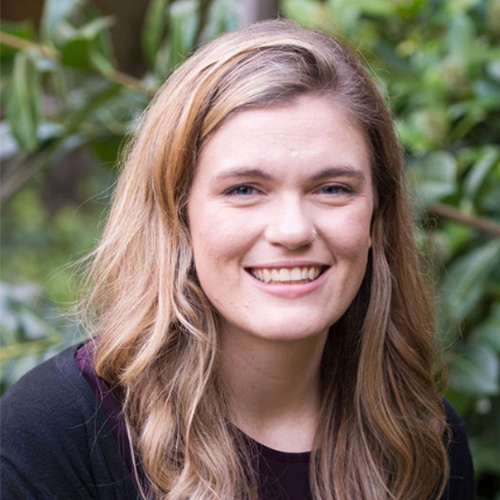
Susan Glenn
susancg@uw.edu
Monitoring and Evaluation of Simulation-Based Team Training Programs for Obstetric and Neonatal Emergencies: Development of a Monitoring and Evaluation Toolkit and Communication of Project Results
PRACTICUM SITE: PRONTO International
SITE SUPERVISOR: Kimberly Calkins
DEPARTMENT: Global Health
FACULTY ADVISER: Grace John-Stewart
I am a second-year MPH candidate in Global Health interested in the monitoring and evaluation of global health programs. For my practicum, I worked with PRONTO International, a global maternal and newborn health nonprofit, to support their monitoring and evaluation efforts. I produced a white paper communicating the findings and lessons learned from an obstetric and neonatal emergency simulation and team training intervention in Mozambique. Incorporating the learnings from Mozambique, I developed a toolkit to guide planning and implementation of future monitoring and evaluation efforts at PRONTO. It was a wonderful experience to take the concepts I have learned in the MPH program and apply them to a project with my former employer, PRONTO International, where I first developed an interest in monitoring and evaluation.

Alex Ziontz
aziontz@uw.edu
WADOH Tick Surveillance Practicum
PRACTICUM SITE: Washington State Department of Health
SITE SUPERVISOR: Elizabeth Dykstra
DEPARTMENT: Epidemiology
FACULTY ADVISER: Janet Basemen
I am a second-year MPH student in the Department of Epidemiology. I work at the Washington State Department of Health on the zoonotic and vector-borne disease team, conducting disease investigations as part of the ORCA team. It was through this position that I connected with the public health entomologist, Elizabeth Dykstra, to undertake this practicum project. The project addresses a priority for vector-borne disease surveillance in Washington state, as tick surveillance has long been under-resourced. With the knowledge that tickborne diseases in Washington are expected to increase as the climate changes, I began the process of gathering and linking data systems that house tick and pathogen data. Additionally, I created a new public tick submission portal to improve passive tick surveillance and public engagement. Lastly, I assisted the ZD/VBD team with constructing their communications plan and ensuring that tick borne disease messaging is prioritized.
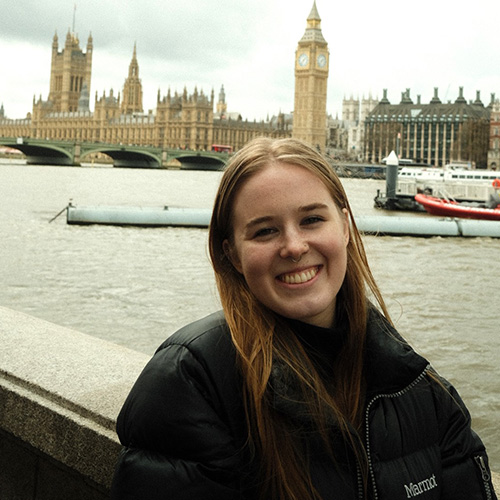
Anna Elias-Warren
annaew@uw.edu
Vibrio Surveillance and Regulation Evaluation
PRACTICUM SITE: Washington State Department of Health
SITE SUPERVISOR: Laurie Stewart
DEPARTMENT: Epidemiology
FACULTY ADVISER: Janet Basemen
I am a second-year epidemiology MPH student interested in public health practice and infectious disease epidemiology. I wanted to utilize my practicum to learn more about how public health systems conduct routine surveillance for reportable diseases. For my practicum, I was able to work with the Foodborne Team at the Washington State Department of Health. The goals of my practicum included evaluating the current Washington State Vibrio parahaemolyticus (Vp) control plan and vibriosis surveillance system. My final deliverables included a list of suggestions on how to improve the current Washington Vp control plan and a list of suggestions on how to improve the current flow of surveillance information between state and local partners.
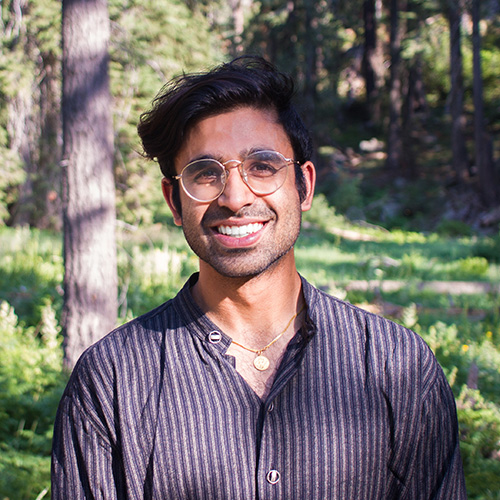
Arvind Venkataraman
avenkata@uw.edu
Investigation Historical Trends in Non-Communicable Disease Among the Port Gamble S'Klallam Tribe
PRACTICUM SITE: Port Gamble S’Klallam Tribe Clinic (Kingston, WA)
SITE SUPERVISOR: Dr. Jolene Sullivan
DEPARTMENT: Epidemiology
FACULTY ADVISER: Dr. Scott Lindquist
I am a second-year MPH candidate in Epidemiology and am particularly interested in investigating disease trends among communities neglected historically by public health and medicine, including rural and Indigenous communities. I had the great privilege of working with the Port Gamble S'Klallam people of Kingston, WA, who, in 2019, developed an expanded healthcare clinic under the direction of Dr. Jolene Sullivan, a member of the S'Klallam. This was the first truly integrated healthcare center on the reservation, and Dr. Sullivan and I were interested in looking at take-up rates for clinical services and health outcomes, particularly non-communicable diseases, including diabetes. I also performed a large-scale digitization of historical data collected by previous clinic iterations but recorded only on paper, which served both as a comparator to current data as well as a valuable investigation into the tribe's engagement with healthcare in the past.

Dimple Vaidya
dimple@uw.edu
REDCap Data Cleaning and Quality Assurance Project
PRACTICUM SITE: Washington State Department of Health
SITE SUPERVISOR: Sabine Meuse
DEPARTMENT: Epidemiology
FACULTY ADVISER: Dr. Grace John Stewart
I am a second-year MPH student in the Department of Epidemiology. I am an international student from India. My areas of interest are maternal healthcare, infectious diseases, vaccines (specifically HPV vaccine), and cancer. During my practicum, I worked with the Washington State Department of Health on creating a communication plan for data entry updates and the REDCap project syncing SOP. I worked on data cleaning, synchronization, and quality assurance to improve data integrity and accuracy within the Infection Prevention Control Program. It was my best experience working with the Infection Prevention team, and I enjoyed every minute of my practicum! In my free time, I enjoy yoga, reading, and swimming.

Eslam Abousamra
eabousam@uw.edu
Pilot Clinical Trial Monitoring Cytokine Release Syndrome in Oncology
PRACTICUM SITE: Regeneron Pharmaceutical
SITE SUPERVISOR: Erin Robertson
DEPARTMENT: Epidemiology
FACULTY ADVISER: Lisa Manhart
I'm a second-year epidemiology MPH student, and I've spent the last two years as a research assistant at the Fred Hutch Research Center. Recently, I had the opportunity to contribute to a project within the Global Clinical Trial Strategy team at Regeneron Pharmaceuticals. My focus was on validating wearable devices for monitoring core body temperature and vital signs, particularly for patients undergoing cancer immunotherapy. The project involved executing a pilot study with healthy volunteers, where I played a role in refining study protocols, creating workflow diagrams, developing data analysis scripts, and recruiting participants. The validated wearable devices have the potential to enhance safety monitoring in clinical trials, providing real-time data for prompt intervention in adverse events. This experience has deepened my understanding of epidemiological methodologies and the transformative impact of digital health technologies on clinical trials. I recommend further investment in these advancements for the benefit of patients and healthcare professionals.
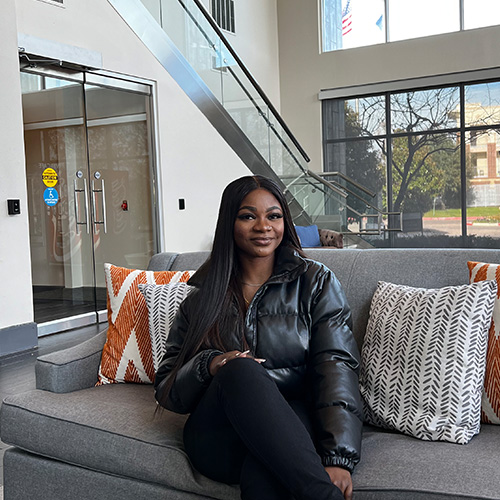
Inemialu Okhagbuzo
mokhag@uw.edu
Supporting the Antimicrobial Stewardship Long Term Care Collaborative and Antimicrobial Stewardship Project
PRACTICUM SITE: Washington State Department of Health, Healthcare-Associated Infections & Antimicrobial Resistance Program
SITE SUPERVISORS: Kelly Kauber, Katarina Kamenar
DEPARTMENT: Global Health
FACULTY ADVISER: Olusegun Soge
I am a second-year MPH candidate in the Department of Global Health with interests in maternal and child health, health system strengthening, and optimizing healthcare access for all, as well as a medical doctor. For my practicum, I worked with the Washington State Department of Health Antimicrobial Stewardship (AMS) team as a health service consultant, where I developed an internal-facing dashboard for summarizing NHSN dialysis data. This tool facilitated a comparative analysis of antimicrobial use across outpatient facilities, aiding in visualizing trends statewide and guiding targeted outreach strategies. Additionally, I spearheaded the analysis of NHSN Patient Safety Annual Survey Data, creating a reproducible R file to evaluate hospitals’ performance based on facility characteristics. Ultimately, my deliverables will be used to identify high-priority regions for implementing antimicrobial stewardship interventions. I am incredibly grateful to the wonderful DOH AMS team for giving me this amazing opportunity.
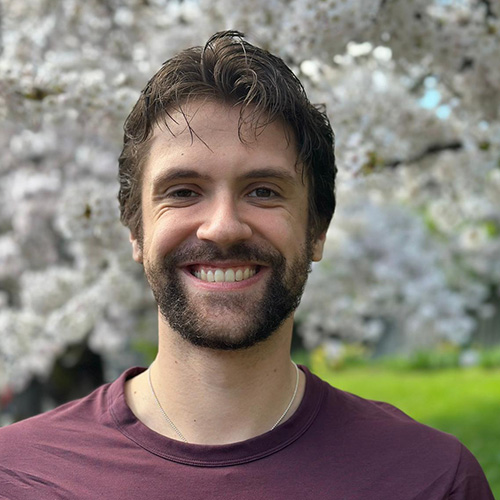
Isaac Derline
isaacd18@uw.edu
Impact of Washington State Department of Health’s (DOH) Infection Control Assessment and Response (ICAR) Consultations on Reducing F880 Citations in Skilled Nursing Facilities
PRACTICUM SITE: Washington State Department of Health
SITE SUPERVISOR: Miriam Mina
DEPARTMENT: Epidemiology
FACULTY ADVISER: Scott Lindquist
I am a second-year MPH candidate in the Department of Epidemiology. For my practicum, I worked with WA DOH’s Infection and Prevention team to assess the effectiveness of their infection control and response (ICAR) consultations in skilled nursing facilities. These ICAR consultations work to ensure that facilities have effective infection prevention protocols in place to reduce the transmission of communicable diseases among vulnerable populations. Of particular note, the Infection and Prevention team wanted to look back at the impact the ICARs had on skilled nursing facilities and if these consultations had any positive influence in preventing the issuing of the F880 citation between 2020-2023, which is the second-highest cited regulatory tag issued by the Department of Social and Health Services. This opportunity allowed me to refine my coding skills in R Studio and communicate about effective communicable disease prevention strategies in healthcare facilities directly from infection preventionists.
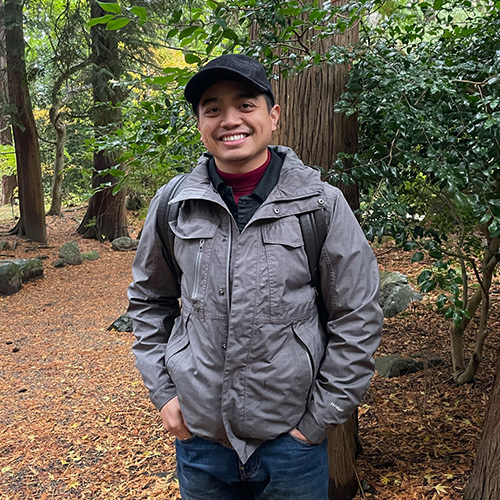
Neil Panlasigui
neilapan@uw.edu
Healthy Equity Dashboard of Foodborne Illness in WA State
PRACTICUM SITE: Washington State Department of Health
SITE SUPERVISOR: Noel Hatley
DEPARTMENT: Epidemiology
FACULTY ADVISER: Daniel Enquobahrie
As a second-year MPH student in Epidemiology at the University of Washington, my focus on Maternal Child Health has been fueled by a commitment to pediatric chronic illnesses, quality improvement, and health equity. With a background from Federal Way, WA, and a Bachelor's in Biology and Comparative History of Ideas from UW, my research has covered topics from the impact of social media on adolescents with Type 1 Diabetes to anti-racist policy development. During my practicum, I developed a dashboard for the WA State Department of Health. This tool analyzes and visualizes demographic data of foodborne illnesses, such as campylobacteriosis, listeriosis, and salmonellosis. It's pivotal in identifying health disparities, aligning with Secretary's Directive 19-01 (3c). This dashboard serves as a tool for epidemiologists to explore disparities in foodborne disease incidence and reporting, significantly contributing to public health strategies.
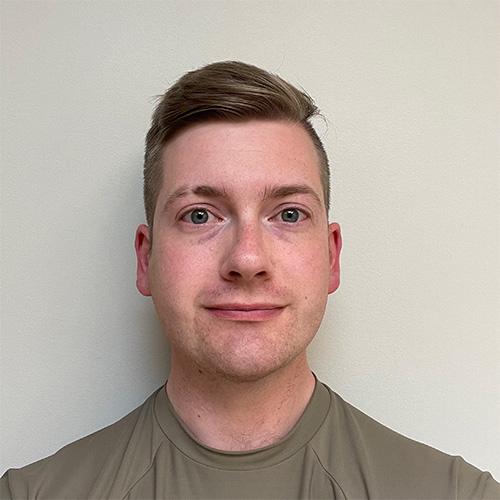
Robert Haynes
robert.haynes19@uw.edu
Tick Borne Disease in Tacoma and Pierce County
PRACTICUM SITE: Tacoma-Pierce County Health Department
SITE SUPERVISOR: Nigel Turner
DEPARTMENT: Global Health
FACULTY ADVISER: Paul Drain and Luke Mease
I am a second-year resident physician in Preventive Medicine at Madigan Army Medical Center in Tacoma. My research interests are STI/HIV prevention and emerging infectious disease surveillance. This practicum project was completed at Tacoma-Pierce County Health Department from August to October of 2023. Ticks are known vectors for diseases in Washington state, predominantly Lyme disease. Other tick borne diseases are seen in the state, but are typically due to recent travel. In 2022 and 2023, there were two cases of Anaplasmosis, a potentially life-threatening tick borne illness, acquired in Washington. In response, the Department tasked me with investigating the likelihood of future cases and developing a communications plan to assist local clinicians in recognizing these illnesses.
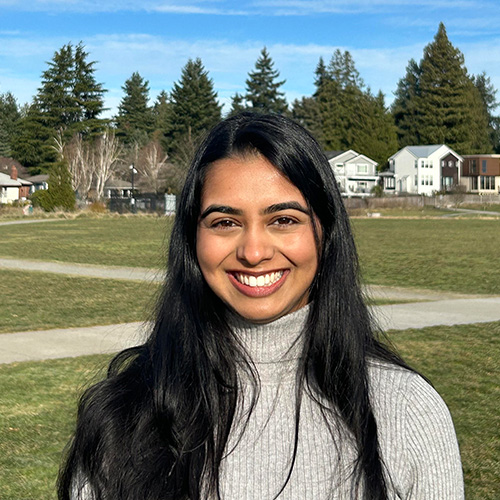
Shivani Paudel
spaude@uw.edu
Enteric Disease Podcast
PRACTICUM SITE: Washington State Department of Health, Food Safety Center of Excellence
SITE SUPERVISOR: Piper Brase
DEPARTMENT: Epidemiology
FACULTY ADVISER: Janet Baseman
I am a second-year MPH student in the Department of Epidemiology. For my practicum, I worked with the Washington Integrated Food Safety Center of Excellence, a division of the Washington State Department of Health. The center's mission is to establish regional centers supporting states in strengthening training and surveillance practices for state-level epidemiologists. During my practicum, I collaborated on a project focused on enhancing communication strategies. Specifically, I worked on developing templates and scripts for podcast episodes aimed towards early career public health professionals, integrating thorough research and background information on historical foodborne outbreaks. This experience allowed me to contribute meaningfully to the center's goal of disseminating crucial information about foodborne and enteric illnesses.
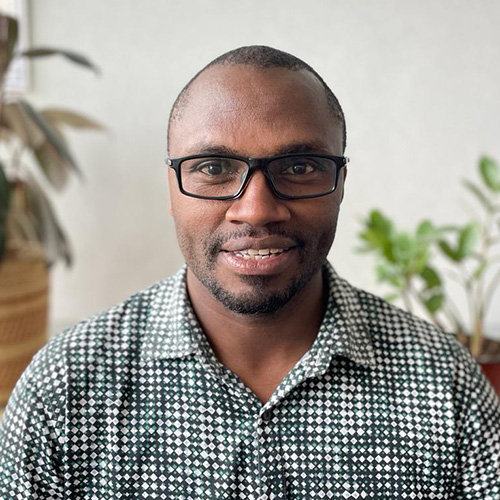
Stanley Ndwiga
smn27@uw.edu
Aiming to Support a Public Health Organization's Efforts in Evaluating Transmission Interruption of Lymphatic Filariasis (LF) in the Coastal Region of Kenya
PRACTICUM SITE: AMREF Kenya
SITE SUPERVISOR: Vincent Ouma
DEPARTMENT: Global Health
FACULTY ADVISER: William Atienza
I am a second-year MPH candidate within the Department of Global Health. For my practicum, I wanted to gain experience within a local public health practice environment. I connected with epidemiologists in the Program Implementation and Evaluation at the Department of Neglected Tropical Diseases (NTD) – Amref Health Africa in Kenya. My main deliverables will be to provide a comprehensive report encompassing community training survey findings, data analysis, and recommendations based on the assessment of MDA coverage. This will include a detailed breakdown of coverage rates, areas of success, challenges faced, and potential strategies for improvement. The report will provide actionable insights and recommendations to enhance future MDA campaigns.
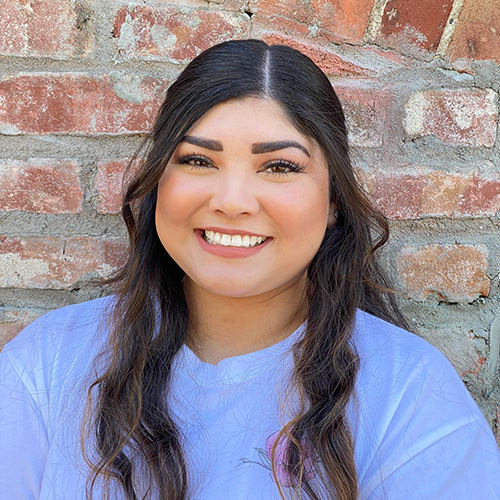
Tyana Trasvina
tyanat15@uw.edu
DMD & PHG Webinar and Pharmacogenomic Literature Search
PRACTICUM SITE: Centers for Disease Control and Prevention (CDC)
SITE SUPERVISOR: Catharine Riley
DEPARTMENT: Public Health Genetics
FACULTY ADVISER: Daniel Promislow
I am a second-year MPH candidate in the Public Health Genetics program with a strong interest in maternal and child health (MCH) and genetic diseases. For my practicum, I worked with the Centers for Disease Control and Prevention (CDC) on two projects. One project was done with the Epidemiology Team, where I helped conduct a literature search for relevant articles on how taking certain antidepressants or antibiotics while pregnant can lead to birth defects. In the future, this will ultimately help with a study to assess pharmacogenes, medication use, and the risk of birth defects, and this information could help with guidance about what dose or which specific medication to take during pregnancy to decrease the risk of birth defects. My second project was a webinar that explored the newly approved gene therapy for Duchenne Muscular Dystrophy (DMD) and put that into a Public Health context. This project was done with the Rare Disorders and Health Outcomes Team to educate the public on what Public Health Genetics is, its intersection with rare diseases, and what this new gene therapy for DMD means for health equity.
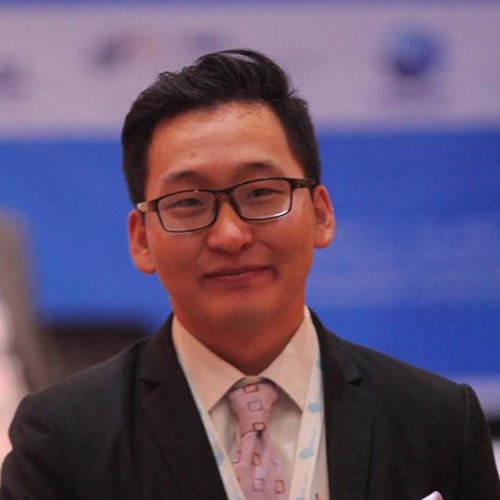
Uurtsaikh Baatarsuren
ub5@uw.edu
Advancing Liver Diseases Modeling for Informed Public Health Action
PRACTICUM SITE: Institute for Health Metrics and Evaluation (IMHE)
SITE SUPERVISOR: Mae Dirac
DEPARTMENT: Global Health
FACULTY ADVISER: Stefan Wiktor
I am a second-year MPH student in the Global Health Program. I am interested in liver diseases and cardiovascular diseases, which are the leading burdens of diseases in my home country. During my practicum at IHME, I contributed to a cirrhosis etiology project, focusing on HepC, HepB, NAFLD, and alcohol. My responsibilities included reviewing available sources on cirrhosis etiology to prepare for the new GBD 2022 analysis. Additionally, using this new model, I assisted in creating communication materials and disseminating them to IHME partners and countries with high liver disease burdens like Mongolia.
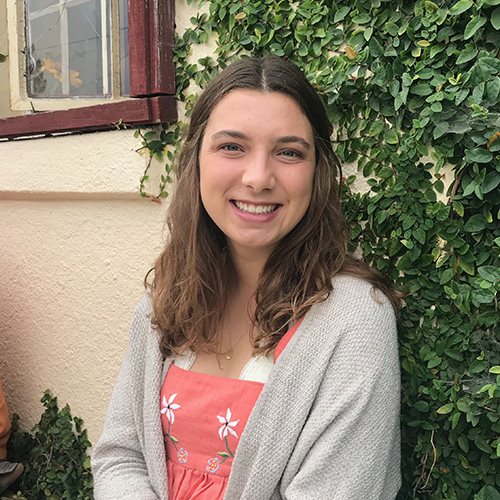
Anna Frauenheim
afrauen@uw.edu
Safer Degreaser Exposure Pilot Study
PRACTICUM SITE: Public Health – Seattle & King County
SITE SUPERVISOR: Steve Whittaker
DEPARTMENT: Epidemiology
FACULTY ADVISER: Diana Ceballos
My practicum was with Public Health, Seattle & King County. I interned with the Hazardous Waste Management (Haz Waste) Research team and worked closely with the Business team. Haz Waste has an ongoing incentive program to help local small businesses switch to safer degreasers. My role was in implementing a study to assess worker exposures to toxic chemicals before and after the safer degreaser switch in local auto repair shops. I also worked under the mentorship of DEOHS faculty with an EDGE Center-funded grant to conduct the exposure assessment. The study consists of biological samples, air samples, worker surveys, and workplace observations. I helped submit the IRB application, design and develop study protocols, create fieldwork forms, design recruitment materials, and conduct study visits. This exposure assessment will help Haz Waste understand whether workers' health is being positively affected by switching to safer products.
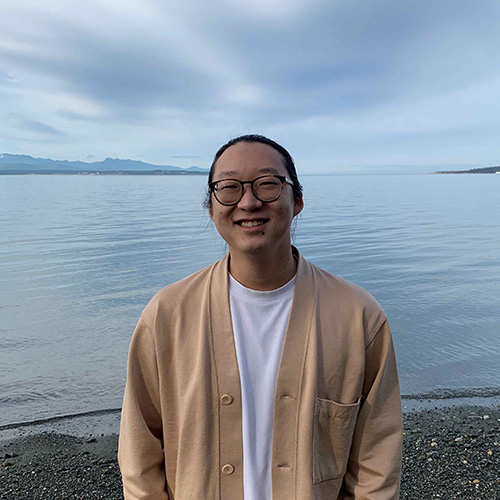
Evan Shigaya
eshigaya@uw.edu
Hanford Challenge at Madison Middle School
PRACTICUM SITE: Hanford Challenge
SITE SUPERVISOR: Liz Mattson
DEPARTMENT: Health Systems and Population Health
FACULTY ADVISER: Amy Hagopian
I am a second-year MPH student in Health Systems and Population Health, in the Health Systems and Policy track. For my practicum, I worked with Hanford Challenge, a watchdog group that holds the Hanford nuclear site accountable and protects the rights of cleanup workers. Most students in Washington state are unaware of Hanford, the environmental health consequences associated with Hanford, and how those consequences disproportionately burden marginalized populations. The project aimed to bring awareness to these issues through the creation of a unique curriculum module for Madison Middle School students as part of their Washington state history class. The module I created focused on systemic racism at the Hanford site, specifically the experiences of the local Native populations.
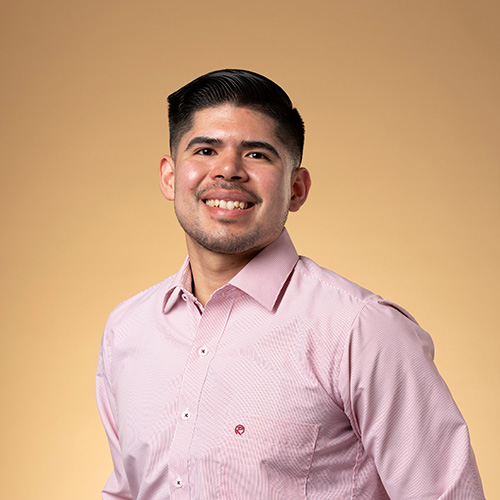
Javier Silva
jasilvah@uw.edu
Improving Climate Communication Strategies with At-Risk Communities in Washington State
PRACTICUM SITE: University of Washington, Department of Environmental and Occupational Health Sciences (DEOHS)
SITE SUPERVISOR: Maria Blancas, PhD, MPH
DEPARTMENT: Epidemiology
FACULTY ADVISER: Eddie Kasner, PhD, MPH
I am a second-year Master of Public Health in Epidemiology student with interests in Latine, immigrant, and farmworker communities. A partnership was established between the University of Washington DEOHS and a non-profit organization, Wenatchee CAFÉ. This partnership works collaboratively to unite community stakeholders to brainstorm innovative ideas on improving heat, smoke, and wildfire communication strategies with at-risk populations. The partnership hosts a series of three Community and Climate Impact (CCI) Hub workshops over a 9-month period. The CCI Hub is composed of community leaders, including local health districts and non-profit organizations. My role was to develop an interview guide packet and conduct recruitment interviews to engage CCI Hub members in project activities and receive feedback from members. Further, I supported the organization and delivery of the CCI Hub Workshop 1, where I presented results on a storytelling activity involving storyboards from farmworking families regarding their experiences with climate impact events.
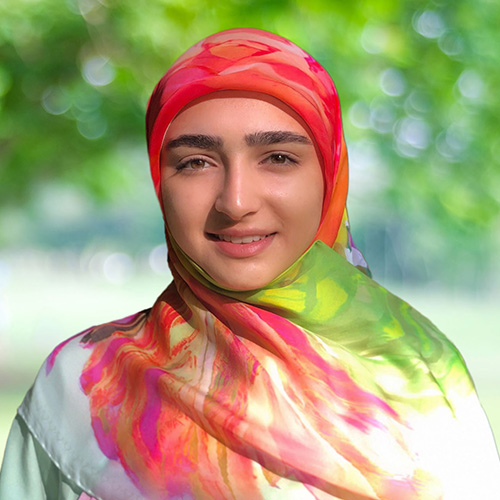
Mariam Assaad
ma290@uw.edu
A Comprehensive Approach to UW Seattle Campus Well-Being
PRACTICUM SITE: University of Washington, Department of Environmental Health and Safety
SITE SUPERVISOR: Jimmy Spencer
DEPARTMENT: Environmental and Occupational Health Sciences
FACULTY ADVISER: Marissa Baker
I am a second-year MPH candidate in Environmental Health Sciences. For my practicum, I worked with the University of Washington’s Environmental Health and Safety department, specifically in Occupational Safety and Health, on different projects. I got involved in areas like industrial hygiene and occupational health, contributing to the respiratory protection program, noise assessments, and air quality. I did practical things like fit tests and creating safety materials, such as a Winter Safety Focus Sheet. My work aimed to make the campus safer and promote a culture of safety. I used data analysis, communication skills, and public health knowledge, aligning with the CEPH. I learned a lot and grew professionally by balancing challenges and accomplishments. Also, I expanded my professional network and potential for future collaborations. Overall, this practicum transformed me into a more capable public health professional with a focus on occupational safety and health. My experience has deepened my commitment to addressing public health challenges and fostering safer environments for communities.
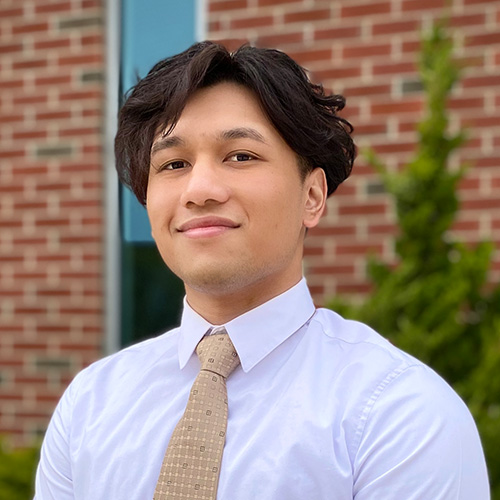
Francis Ramirez
frrjr@uw.edu
Parks Observation Project
PRACTICUM SITE: Public Health – Seattle & King County
SITE SUPERVISOR: Seth Schromen-Wawrin
DEPARTMENT: Epidemiology
FACULTY ADVISER: Jessica Jones-Smith
I am a second-year MPH student in the Department of Epidemiology. My primary interests are in chronic disease, with emerging interests in HIV, founded on recent experience in this field. For my practicum, I worked with Public Health – Seattle & King County's Healthy Eating Active Living Program (HEAL) on their Parks Observation Project during the Spring of 2023. I assisted in the analysis and presentation of park observation data gathered in 2022. This involved collecting data from the US Census and comparing it to the data collected by the team the previous year. Using this information, I created information sheets that were shared with the parks department and/or community members to help them readily understand who is using the various portions of the parks at different times.
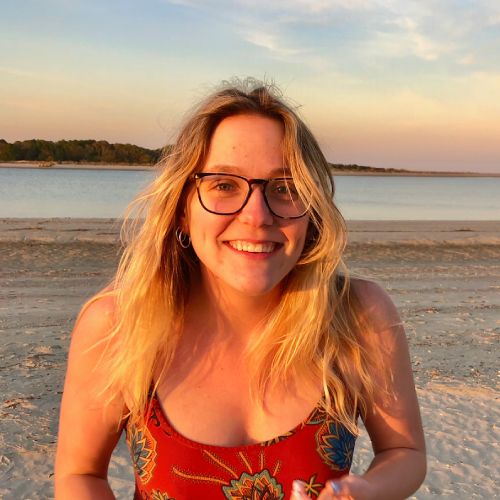
Lauren Church
lec3300@uw.edu
Evaluating the Impacts of Land Tenure Security on Health
PRACTICUM SITE: Landesa
SITE SUPERVISOR: Krista Jacobs
DEPARTMENT: Epidemiology
FACULTY ADVISER: Julianne Meisner
I am a second-year MPH student in Epidemiology, with interests in STI Prevention as well as environmental epidemiology and One Health. For my practicum, I was able to gain further experience in One Health and work with a non-profit organization, Landesa, which seeks to secure land rights for communities experiencing a lack of land tenure security (LTS). The Research, Learning & Evaluation team at Landesa wanted to understand how their work and public health intersect and how to take this into consideration during their program evaluation. For my project, I initially conducted a literature review on land tenure security and how this influences health outcomes. With this information, I wrote a white paper on pathways through which land tenure and tenure security may impact health outcomes and suggest potential community-level or landscape-level health indicators. Then, to illustrate these results, I developed an accompanying visual of a conceptual framework illustrating key relationships between land tenure and health.
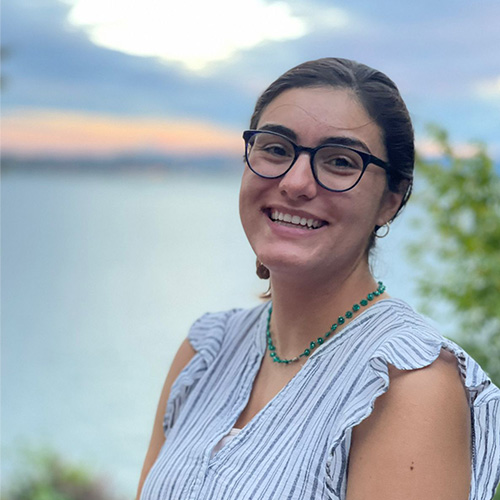
Marycarmen Navarro Morales
mcnm@uw.edu
Environmental Health Field Focus Guides for the Environmental Health Services Division of Public Health – Seattle & King County
PRACTICUM SITE: Public Health – Seattle & King County
SITE SUPERVISOR: Douglas W. Dyer
DEPARTMENT: Epidemiology
FACULTY ADVISER: Janet Baseman
I am a second-year MPH student in the Department of Epidemiology. I received my undergraduate degree from UW in Medical Anthropology & Global Health. My areas of interest are social determinants of health, anti-racism, equity, geospatial and neighborhood environment, access to housing, access to health insurance, quality of life, and modifiable risk factors. During my practicum, I contributed to the development of 11 pathogen-specific Field Focus Guides, which are used by Public Health Seattle & King County (PHSKC) as part of their Foodborne Illness Go Kit when responding to outbreaks. These guides provide detailed information about specific pathogens, such as E. coli, that investigators utilize in the field. My work involved reviewing each of the 11 Field Focus Guides, cross-checking the information with reliable sources, such as the Centers for Disease Control & Prevention and the Council to Improve Foodborne Outbreak Response, and updating the guides' design for optimal use in the field. My efforts helped ensure that the guides are accurate, up-to-date, and user-friendly, ultimately supporting PHSKC's mission to protect and improve the health and well-being of the community. My faculty advisor was Janet G. Baseman, and the site supervisor was Douglas W. Dyer.
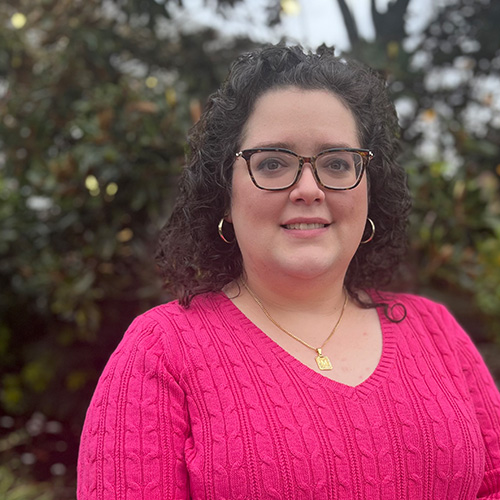
Mercedes Ortiz Rodriguez
mrodri2@uw.edu
Impacts of Pets on the Mental Health of the Hispanic Community
PRACTICUM SITE: El Centro de La Raza, Seattle Veterinary Outreach
SITE SUPERVISOR: Monica Beard
DEPARTMENT: Health Systems and Population Health
FACULTY ADVISER: Linda Ko
I am a second-year Masters in Public Health student in Health Systems and Population Health, Social and Behavioral Science concentration. I became part of Seattle Veterinary Outreach, who help people unable to afford vet services receive the resources they need. They are a mobile vet clinic that partners with other community organizations to reach populations needing vet services, predominantly the unhoused community. Through grants, they can also provide additional services such as social resource navigation services, where they help their pet parents and families get connected to shelter, food, and human health services. Through a PetSmart grant, they were able to partner with El Centro de La Raza to understand the veterinary care that the Hispanic Spanish-speaking community needs. I was brought on to help create and distribute surveys, along with leading focus groups and training El Centro de La Raza staff on survey distribution and data management.
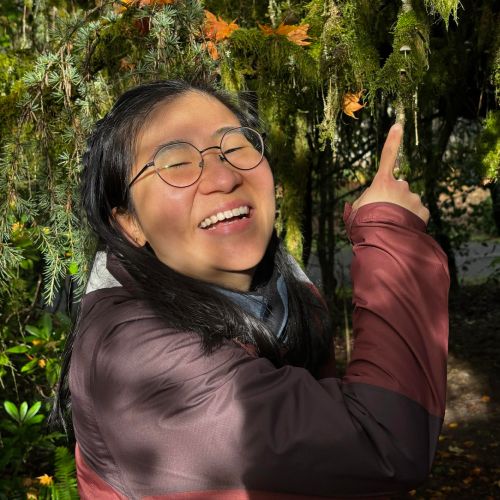
Pamela Lim
pamlim@uw.edu
Migration in King County
PRACTICUM SITE: Population Health Initiative, Center for Studies in Demography and Ecology
SITE SUPERVISOR: Jessica Godwin
DEPARTMENT: Environmental and Occupational Health Sciences
FACULTY ADVISER: Tania Busch Isaksen
I am a concurrent degree student pursuing a Master of Urban Planning and a Master of Public Health in Environmental Health Sciences. I had the opportunity to be part of the 2023 cohort of the Applied Research Fellowship Program under the Population Health Initiative (PHI) and the Center for Studies in Demography and Ecology (CSDE). We partnered with Seattle-King County Public Health and King County to investigate the migration of households across regions within the county. For my practicum, I analyzed the environmental health characteristics of Health Reporting Areas (HRAs) in King County. I considered the flow of households to and from these HRAs and how their environments changed as they moved. Our report aims to inform the policies and programs of King County and how resources are allocated across the HRAs.
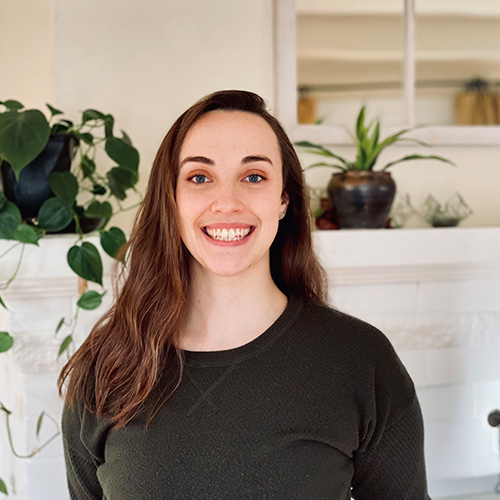
Sarah Randall
sarand@uw.edu
Hanford Challenge at Madison Middle School
PRACTICUM SITE: Hanford Challenge
SITE SUPERVISOR: Liz Mattson
DEPARTMENT: Health Systems and Population Health
FACULTY ADVISER: Dr. Amy Hagopian
I am a second-year MPH student in the Health Systems and Population Health department with a concentration in social and behavioral sciences. For my practicum, I worked with Hanford Challenge, which is a watchdog group dedicated to protecting and advocating for Hanford workers' safety. To teach middle school students at Madison Middle School in West Seattle about the Hanford Nuclear Power Plant (past, present, and future), I created an interactive curriculum unit. The curriculum unit activity was inspired by the qualitative research method 'photo voice,' which associates photos with stories and experiences. In this project, I also conducted a literature review, interviewed key stakeholders associated with the Hanford Challenge organization, and created a systems thinking map to inform the project activities.

Sonyta Saad
ssaad2@uw.edu
Advancing a Portfolio Focusing on Climate Change and Health Research
PRACTICUM SITE: Center for Health and the Global Environment (CHanGE)
SITE SUPERVISOR: Kris Ebi
DEPARTMENT: Global Health
FACULTY ADVISER: Steve Gloyd
I am a second-year MPH candidate in the Department of Global Health. For my practicum, I worked with the Centre for Health and the Global Environment (CHanGE) in collaboration with Medic Labs to conduct a scoping literature review. The review aimed to synthesize and assess existing evidence on climate change and health exposure pathways in the specific regions where Medic operates. The scoping review explored the impacts of climate change on health systems and health services delivery. It examined the healthcare workforce's awareness and knowledge of adaptation strategies to climate change, as well as the use of technological innovations to predict and adapt to the impact of climate change on healthcare. A significant emphasis was placed on identifying published literature on the deployment of Artificial Intelligence as a potential tool for health systems to adapt and mitigate climate-sensitive health outcomes. This includes leveraging AI's potential to transform healthcare delivery in the face of climate change challenges.
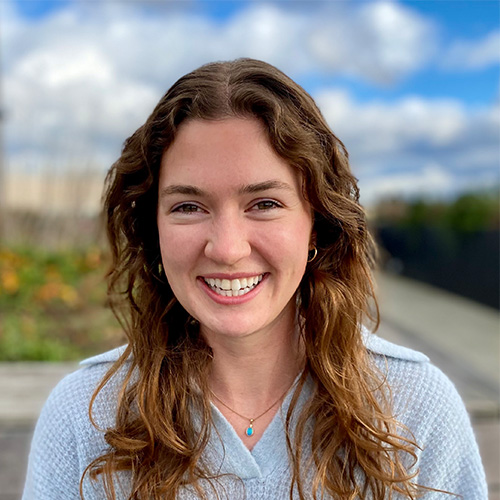
Tess LaPatra
tlapatra@uw.edu
Examining Trends in Extreme Heat Mortality Data in Washington State From 2016-2021
PRACTICUM SITE: Washington State Department of Health
SITE SUPERVISOR: Kelly Naismith
DEPARTMENT: Epidemiology
FACULTY ADVISER: Jeremy Hess
I am a second-year MPH student in epidemiology. For my practicum, I interned at the Washington State Department of Health, specifically within the Office of Environmental Public Health Sciences on the Climate and Health team. I researched and summarized climate-health literature, shaping the foundation, methods, and discussion in the Extreme Heat Report I wrote for the DOH that enhanced understanding of health impacts of extreme weather. I analyzed 2016 through 2021 Washington state mortality data on heat-related fatalities, identifying key health determinants including age, sex, occupation, marital status, education, and location, and generated visuals including tables, graphs, and maps. I developed R code for data processing, statistics, and visualizations, empowering future environmental analysis at the DOH for other health outcomes related to climate change.

Anissa Chan
anissalc@uw.edu
Identifying Barriers and Facilitators of Cervical Cancer Screening Follow Up at a Community Health Center in Los Angeles, California (Chinatown Service Center) in Partnership with USC
PRACTICUM SITE: University of Southern California
SITE SUPERVISOR: Dr. Jennifer Tsui
DEPARTMENT: Epidemiology
FACULTY ADVISER: Dr. Amanda Phipps
I am a second-year Epidemiology MPH student with interests in cancer epidemiology, cancer prevention, and health services. For my practicum, I worked with the USC Norris Comprehensive Cancer Center in partnership with the Chinatown Service Center (CSC), a federally qualified health center in Los Angeles, California, to improve access to cervical cancer care and screenings among the racial/ethnic minorities and other marginalized groups that CSC serves. I developed an analysis plan and contributed to the analysis of electronic health records data to examine factors associated with patterns of cervical cancer screening, lack of cervical cancer screening follow-up, and resolution of abnormal screening results and subsequent referral to follow-up care at CSC. I presented the findings from my practicum to the CSC leadership team to help inform future strategic interventions for improving cervical cancer screening and follow-up care at their clinics.
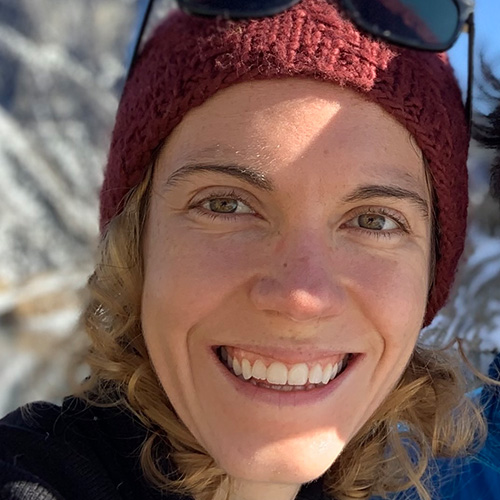
Anna Morenz
amorenz@uw.edu
Advancing Health Equity through Primary Care for the Washington State Medicaid Population
PRACTICUM SITE: Washington State Health Care Authority
SITE SUPERVISOR: Judy Zerzan-Thul
DEPARTMENT: Health Systems and Population Health
FACULTY ADVISER: Molly Firth
I am a primary care physician and MPH student passionate about addressing health disparities and improving the quality of and access to primary care. My practicum was conducted with the Washington State Health Care Authority (HCA), the state’s Medicaid agency, which is involved in multi-pronged efforts to better support primary care. Specifically, the HCA is leading the Washington State Multi-Payer Primary Care Transformation Model (PCTM) to improve primary care access, align payment standards and quality metrics, and promote whole-person and team-based primary care. My areas of focus included: assisting with the communication outreach to practices about the model and how to enroll, where practices will be assigned a certification level from Level 1-3 based on their capacity to provide comprehensive, whole-person, primary care, and generating recommendations for how PCTM can explicitly address and advance health equity.
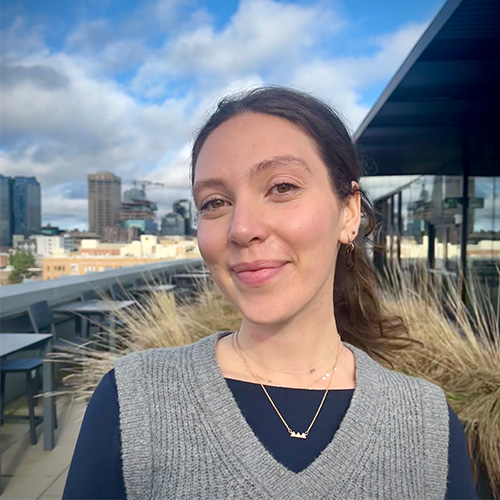
Arden Saravis
asaravis@uw.edu
Dissemination of Risk Assessment Information Regarding Respiratory Infection Risk in HIV Departments to Health Facilities in Kenya and Zambia
PRACTICUM SITE: NYU Langone Health
SITE SUPERVISOR: Hae-Young Kim
DEPARTMENT: Epidemiology
FACULTY ADVISER: Monisha Sharma
I am a second-year MPH student in Epidemiology, with interests in infectious disease modeling and engaging data visualization. For my practicum, I worked with NYU Langone Health in their partnership with the Centre for Infectious Disease Research in Zambia (CIDRZ) and Strathmore University to disseminate their research to health facilities where data was collected. The project assesses the risk of HIV patients contracting COVID-19 and other respiratory pathogens while accessing in-person care to create guidelines for when in-person HIV services should be moved to a remote platform given levels of community transmission. I analyzed data to evaluate factors such as airflow, crowding, ventilation, and time spent in spaces. I generated individual risk profiles for each facility, detailing an overall risk value, risk per treatment space, and room characteristics that could be impacting this risk value to inform decision-making regarding actions their department can take to decrease transmission in their spaces.
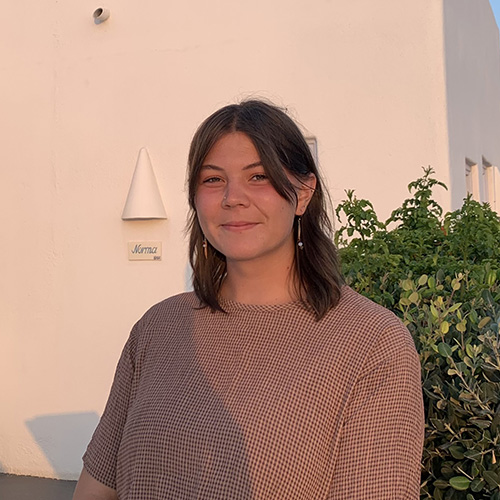
Chloe Hatfield
chat17@uw.edu
Culturally Specific Retailer Participation in SNAP Produce Match
PRACTICUM SITE: Washington State Department of Health
SITE SUPERVISOR: Alyssa Auvinen
DEPARTMENT: Health Systems and Population Health
FACULTY ADVISER: Molly Firth
I am a second-year Master of Public Health student in Health Systems and Population Health, interested in how we build healthy communities for all through safe, reliable, and sustainable food systems, transportation, and housing. I am passionate about community-centered and evidence-based interventions, practices, and policies that advance health equity and empowerment. This project identifies facilitators and barriers to culturally specific retailer participation in SNAP Produce Match in Washington State. Based on its 2023 legislative report, DOH intends to increase culturally specific retailer participation in their match programs. This project will inform application changes and future dissemination strategies.

Corrie McDaniel
cfletch2@uw.edu
Culturally Specific Retailer Participation in SNAP Produce Match
PRACTICUM SITE: Washington Chapter of the American Academy of Pediatrics
SITE SUPERVISOR:Yolanda Evans
DEPARTMENT: Health Systems and Population Health
FACULTY ADVISER: Larry Kessler
I am a current MPH student in Health Systems and Population Health within the Health Systems and Policy concentration. I am a pediatric hospitalist and my research interests are understanding and improving access to inpatient care and outcomes from care for children in rural areas. For my practicum I partnered with the Washington Chapter of the American Academy of Pediatrics (WCAAP) to define at-risk counties in the state of Washington for pediatric inpatient services. While most hospital-based pediatric care is managed outside of specialty children's hospitals, it is unknown what resources are available for children in most general hospitals and how clinicians within Washington make decisions on where to send children for hospitalization. Using hospital administrative data and clinician interviews and surveys, we are refining what areas in Washington are pediatric medical deserts. This work will help shape advocacy agenda for the WCAAP and strengthen disaster planning efforts across the state.
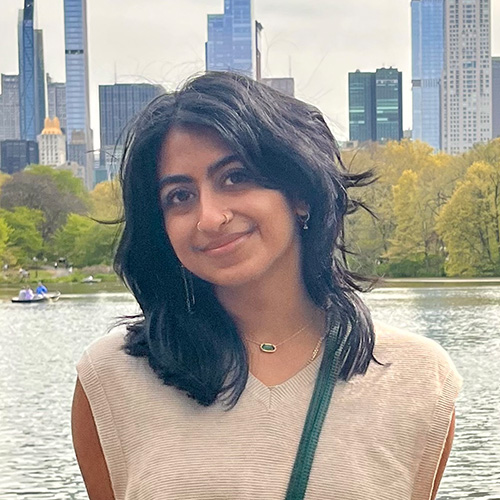
Dil Singh
singhd5@uw.edu
Understanding HIV Prevention Strategies among Transgender Women in the Philippines
PRACTICUM SITE: University of Philippines, Manila
SITE SUPERVISOR: Olivia Sison
DEPARTMENT: Epidemiology
FACULTY ADVISER: Arjee Restar
I am currently a second-year Master of Public Health student specializing in Epidemiology, with a passion for promoting healthcare equity and access, as well as HIV prevention and treatment, particularly among transgender and gender-diverse communities. During my practicum, I collaborated with the University of the Philippines Manila to enhance our understanding of HIV prevention strategies among transgender women in the Philippines. My responsibilities included contributing to the development of a comprehensive counseling manual designed to assist counselors in facilitating discussions covering crucial topics such as gender expression, sexual health, and HIV self-testing. Additionally, I developed a website tailored for project participants and Filipina trans women to provide seamless access to essential information, gender-affirmative services, and consolidated resources. Beyond my academic pursuits, I support community events, enjoy live music, and create art in various forms in my free time.
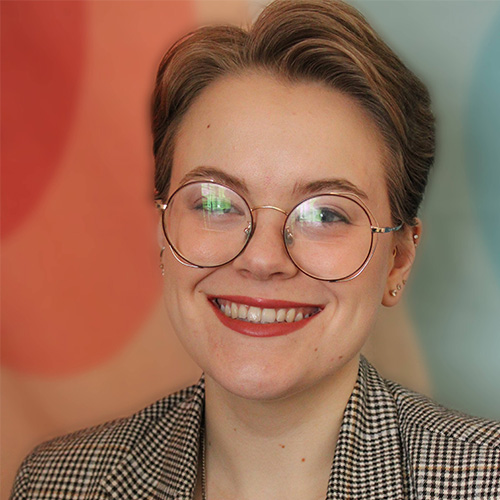
Elizabeth Carnesi-Hudson
ecarnesi@uw.edu
Length of Stay as a Measure of Value Based Purchasing
PRACTICUM SITE: Washington State Health Care Authority
SITE SUPERVISOR: Glory Dole
DEPARTMENT: Health Systems and Population Health
FACULTY ADVISER: Molly Firth
I am a second-year MPH candidate in the Health Systems and Population Health (Health Systems and Policy track). For my practicum, I worked with the Washington Health Care Authority (HCA) evaluating how a Length of Stay Measure could help ensure value for patients in Washington. I compiled research on the length of stay and how its utilization could reduce costs for the HCA and improve quality care. This also highlighted the need to ensure that rural and underserved areas are treated equitably under this kind of measure. I provided a written report on how this kind of measure could be implemented and included potential barriers and needed resources for implementation. My practicum experience will help me be a stronger public health practitioner in the future and was valuable in showing me what state government work with the Centers for Medicare & Medicaid looks like. I am grateful for the experience and to everyone who helped me with this project!
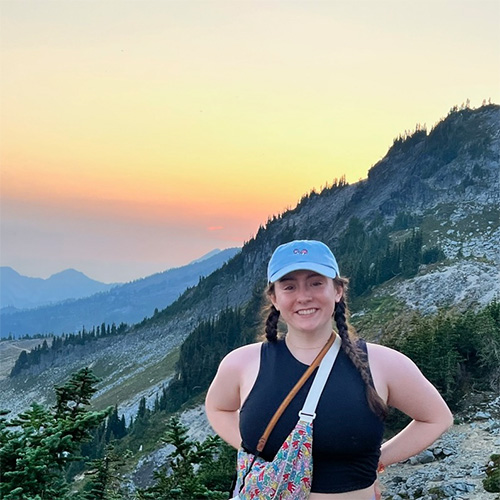
Ellie Harrison
emh17@uw.edu
Social Determinants of Health and Inequities in Obstetric Outcomes in Washington State
PRACTICUM SITE: The Foundation for Healthcare Quality (FHCQ)
SITE SUPERVISOR: Ginny Weir
DEPARTMENT: Epidemiology
FACULTY ADVISER: Daniel Enquobahrie
I am a second-year MPH student in Epidemiology with a concentration in maternal and child health. My research interests include quality improvement in health systems, social determinants of health (SDOH), chronic disease prevention, and complementary medicine. For my practicum, I partnered with OB COAP to review the current literature on SDOH and obstetric outcomes to identify best practices for SDOH screening in obstetric settings. I then created a technical presentation using OB COAP data to analyze the SDOH data collected by their organization and to identify patterns in obstetric process measures by SDOH. Additionally, I designed an educational resource in the form of an infographic for obstetric providers encouraging screening for SDOH of health and detailing best practices for screening. This work will inform future data collection strategies for hospitals and obstetric facilities in Washington state that aim to collect SDOH data.
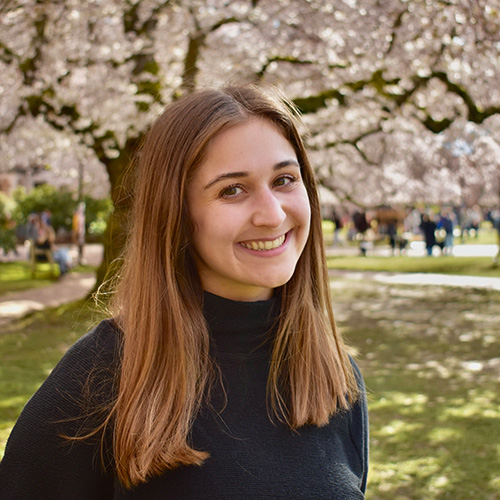
Emma Chrzanowski
emmachrz@uw.edu
Identifying Impacts of the COVID-19 Pandemic in Long-Term Care Facilities Across the PNW
PRACTICUM SITE: Washington State Department of Health
SITE SUPERVISOR: Carolyn Ham, MPH, PTA
DEPARTMENT: Epidemiology
FACULTY ADVISER: Scott Lindquist, MD, MPH
I am a second-year MPH candidate in the Department of Epidemiology. I had the opportunity to work with the Washington State Department of Health for my Practicum project, where there was a need within the Healthcare-Associated Infections team to identify the long-term impacts of the COVID-19 pandemic in long-term care facilities (LTCFs). LTCFs are not all created equally and often provide different services that suit the needs and assistance that residents may need. I was responsible for conducting semi-structured interviews for qualitative research to better understand the long-term impacts still being felt in LTCFs from the stakeholder perspective. The final site deliverable was a written report highlighting the main themes identified from the interviews as well as an oral presentation to the HAI team. I was able to learn a lot about the wider impact of state-level health departments and support provided to promote the health of their residents.
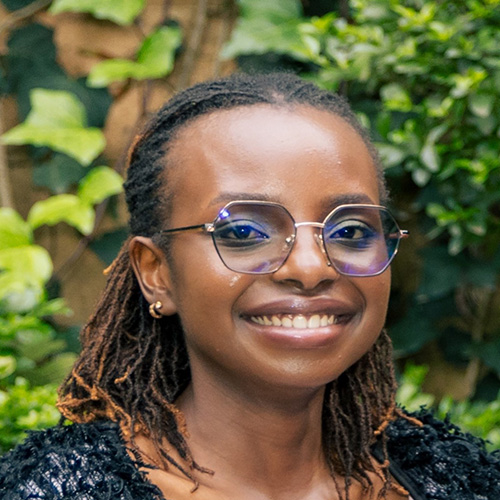
Floria Nyandaya
nyandaya@uw.edu
From Barriers to Bridges: Leveraging AI for Diversifying Clinical Trials Among Underrepresented Populations
PRACTICUM SITE: Zenith Medical and Kidney Center, Abuja, Nigeria
SITE SUPERVISOR: Dr. Olalekan Olatise
DEPARTMENT: Global Health
FACULTY ADVISER: Dr. Kingsley Ndoh
As a second-year MPH candidate in the Department of Global Health, I undertook my practicum at Zenith Medical and Kidney Center (ZMKC), a leading tertiary kidney center in Nigeria, in partnership with Hurone AI Inc. My work entailed a landscape analysis of ethnic minorities' underrepresentation in clinical trials and the economic implications of FDA-rejected drugs due to diversity gaps in pharmaceutical clinical trials. Additionally, I conducted a feasibility study of ZMKC’s clinical trial site process gaps in diagnostics, treatment, adverse events reporting, and adherence to Good Clinical Practice (GCP) and local regulatory guidelines. This groundbreaking AI-driven initiative aims to bolster clinical trial diversity, ensuring more accurate outcomes for approved cancer and renal drugs in diverse settings. Ultimately, the goal is to democratize access to affordable, equitable, and context-specific care, benefiting patients in Nigeria and individuals of African descent.
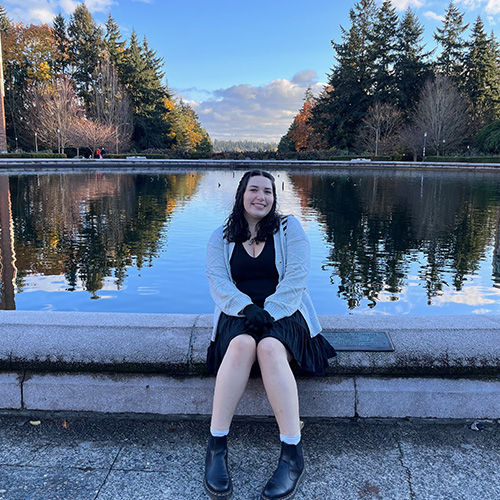
Hannah Perez
vmars24@uw.edu
Culturally Informed Guide to Tuberculosis for Washington State Providers
PRACTICUM SITE: EthnoMed
SITE SUPERVISOR: Ehsan Shayegan
DEPARTMENT: Health Systems and Population Health
FACULTY ADVISER: Clarence Spigner
I am a first-year MPH student in the Generalist track, and I graduated with a Bachelor of Arts in Sociology from Willamette University in 2022. I am interested in working with underserved communities to improve equitable access to safe, affordable, and effective medical care. For my practicum, I am working with EthnoMed, which integrates cultural information into clinical practice. In my partnership with EthnoMed, I have been working on creating a comprehensive cultural guide on tuberculosis for doctors to refer to when treating patients of different backgrounds. This will provide clinical recommendations to address tuberculosis and includes information that is specific to cultural and ethnic groups.
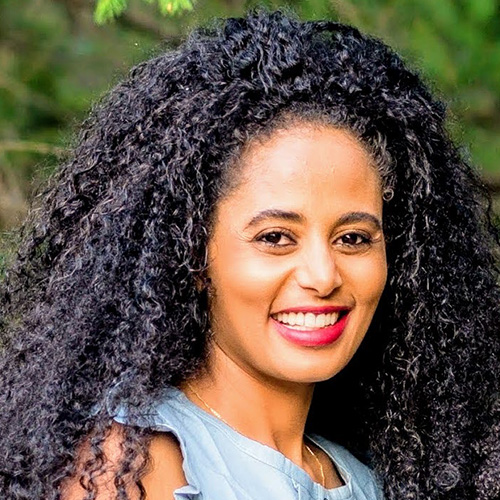
Hiwot Weldemariam
hiwotw@uw.edu
Assessing the Impact of a Bidirectional Text Messaging Intervention on No-Show Rates in a Virtual Perinatal Tele-Psychiatry Clinic
PRACTICUM SITE: University of Washington, Department of Psychiatry & Behavioral Sciences
SITE SUPERVISOR: Dr. Amritha Bhat
DEPARTMENT: Epidemiology
FACULTY ADVISER: Dr. Daniel Enquobahrie
I am a second-year MPH student in Epidemiology, general track. My research focuses on mental health challenges in underserved communities, including immigrants and mothers in the United States and around the world. During my practicum, I gained valuable experience working with the team at the Perinatal Mental Health and Substance Use Education, Research, and Clinical Consultation (PERC) virtual psychiatry clinic. The clinic provides psychiatric assessments, treatment recommendations, and consultations to patients and their healthcare providers through Zoom video conferencing. My primary goal for my practicum was to conduct data analysis to evaluate the effectiveness of a bidirectional text messaging intervention in addressing the clinic's no-show and scheduling problems. This practicum helped me understand the unique challenges that perinatal patients and healthcare providers face. It also provided an opportunity to research the effective use of technology, such as text messaging, to actively engage patients in their healthcare decisions and improve overall health outcomes.
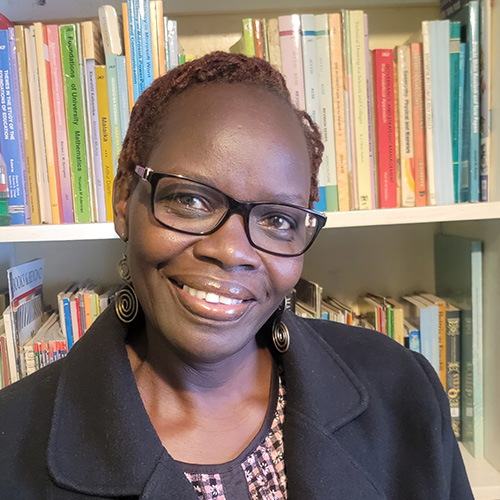
Irene Maeri
imaeri@uw.edu
WhatsApp vs. Zoom: Policy Memo on the Quality and Content of Adolescents’ Focus Group Discussion in Nairobi, Kenya
PRACTICUM SITE: Kenyatta National Hospital
SITE SUPERVISOR: Dr. Irene Njuguna
DEPARTMENT: Global Health
FACULTY ADVISER: Dr. Anjuli Wagner
I am currently a second-year MPH student in the Department of Global Health, with a keen interest in community-driven interventions to improve health outcomes. I worked with the Sauti ya Vijana study for my practicum. This study aimed to compare the quality and content of information obtained from WhatsApp-based FGDs to that from Zoom-based FGDs. The FGDs were conducted with adolescents aged 15 to 19 years in Nairobi, and discussions were based on sexual reproductive health. My role in this practicum was to create a policy memo comparing the quality and content of WhatsApp and Zoom-based FGDs. Through this project, I was able to develop my skills in creating a clear and concise policy memo based on the findings. The policy memo could provide valuable insights for future research and policy development.
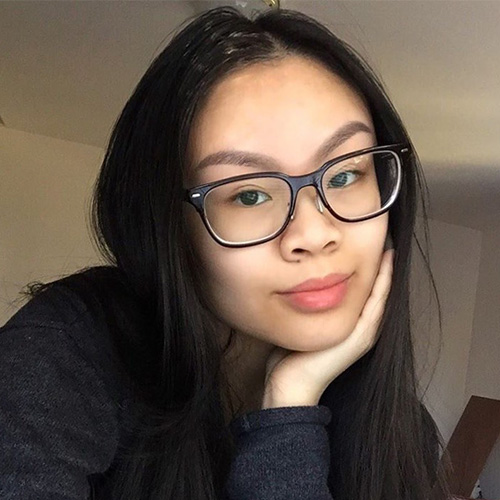
Jessica Hin
hinj@uw.edu
Promoting Social Prescribing Through a Social Marketing Pilot Project Campaign for Health Professionals in Nanaimo, Canada
PRACTICUM SITE: Vancouver Island Social Prescribing Community of Practice
SITE SUPERVISOR: Adam Hoverman
DEPARTMENT: Health Systems and Population Health
FACULTY ADVISER: Clarence Spigner
I am a second-year MPH student in the Health Systems and Population Health department, and my interests include public health among underserved communities of color. For my practicum, I collaborated with the Vancouver Island Social Prescribing Community of Practice. My practicum project focused on promoting social prescribing through a social marketing pilot project campaign for health professionals in Nanaimo, Canada. Social prescribing is when health professionals link patients to non-medical resources and support within the community to improve their overall health and well-being. In this context, creating social marketing tools will allow for more feasible and culturally appropriate communication with indigenous populations and local patients within Nanaimo. During the practicum, I developed a written report on communication strategies to reach potential participants and evaluated each strategy's success, created and collected quantitative and qualitative surveys of participants' experiences, and made infographic/promotional marketing evidence-based material from the Canadian Alliance for Social Connection and Health archive.
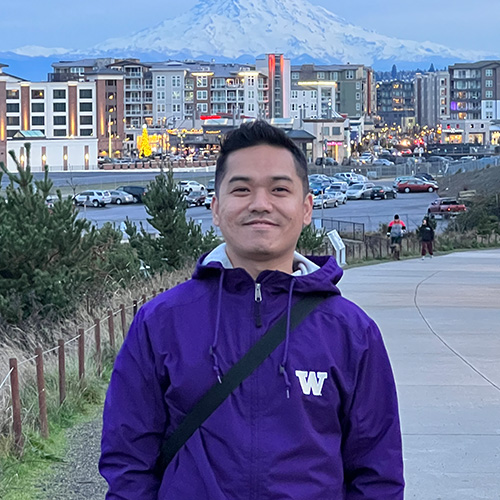
John Chang Lang
jcl38@uw.edu
Enhancing Client Support: Resource Mapping for IRC’s Seattle Health & Wellness Department
PRACTICUM SITE: International Rescue Committee (IRC)
SITE SUPERVISOR: Behnaz Abolshams
DEPARTMENT: Epidemiology
FACULTY ADVISER: Lisa Manhart
I am a second-year Master of Public Health candidate in the Department of Epidemiology. My experience in refugee health and conflict settings has fueled my dedication to public health, particularly in addressing global health disparities and enhancing the well-being of vulnerable populations in Washington State. In collaboration with the International Rescue Committee (IRC) Seattle office's Health and Wellness Department, I worked on a project to map resources across King, Snohomish, and Pierce Counties. My responsibility involved creating resource directories in key areas such as mental health, housing, employment, and social services. This effort resulted in the development of 12 comprehensive guides, which significantly bolster the capabilities of IRC staff to support their clients, including those enrolled in the Survivors of Torture and Survivors of Combat programs. This project aimed to produce valuable resources for clients from diverse backgrounds and empowered IRC case managers with essential, easily accessible information.
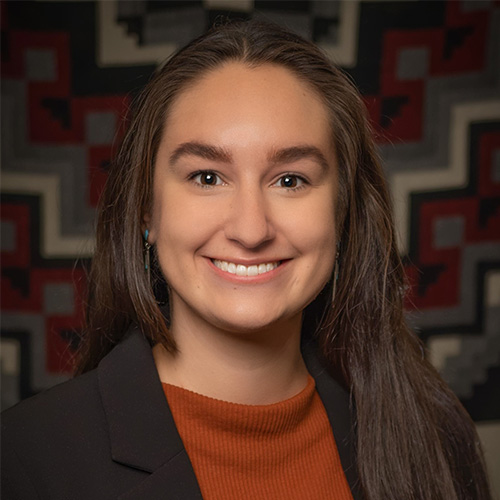
Katrina May
katmay@uw.edu
Courtroom Evaluation Toolkit for Washington State HB 1227
PRACTICUM SITE: Washington State Administrative Office of the Courts
SITE SUPERVISOR: Arina Gertseva
DEPARTMENT: Health Systems and Population Health
FACULTY ADVISER: Audrey Covner
I am a second-year MPH student in Health Systems and Population Health with a health systems and policy concentration. As an Indigenous woman from the Diné and Kawaika communities, my research centers on evaluation practices for policy interventions that address health inequity among Black, Indigenous, and all communities of color. For my practicum, I worked with the Washington State Administrative Office of the Courts on assessing the utilization and impact of Washington State HB 1227 in the child dependency court process. Our group developed courtroom observation tools and related training documents with the ultimate goal of improving outcomes for children and families involved in the child welfare and court systems. Our project seeks to achieve system change to prevent and respond to maltreatment of young children, strengthen families, and promote positive long-term health outcomes for children and their families.
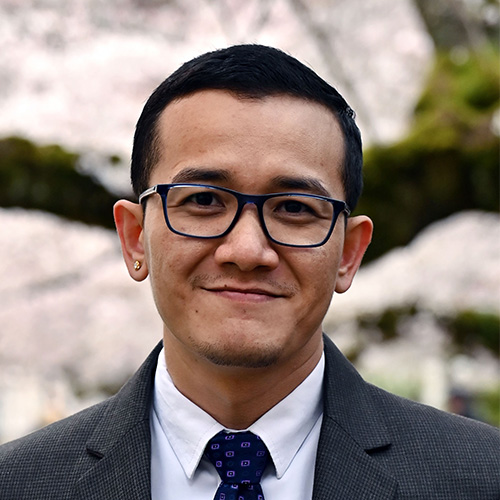
Kaung Myat Thu
kthu2@uw.edu
Evaluation of the NGO Code of Conduct for Health Systems Strengthening
PRACTICUM SITE: Health Alliance International
SITE SUPERVISOR: Amy Hagopian
DEPARTMENT: Health Systems and Population Health
FACULTY ADVISER: Wendy Johnson
I am a second-year Master of Public Health student specializing in Health Services with a concentration in Social and Behavioral Sciences. Over the last decade, I have worked as a medical doctor, a university lecturer teaching public health, a health implementation staff at INGOs, and a public health researcher. My interests are communicable diseases, health behaviors in daily life, health systems strengthening, and healthcare in conflict settings. Growing up and working in Myanmar, I have learned how INGOs can unintentionally harm host countries if they are not careful. Health Alliance International developed the NGO Code of Conduct for Health Systems Strengthening in 2006 so that INGOs could follow and avoid causing harm to the host country's health systems. For my practicum, I collaborated with Shaan-Isabelle Shridhar to evaluate the Code. This project taught me how INGOs can contribute positively to host health systems by decolonizing global public health.
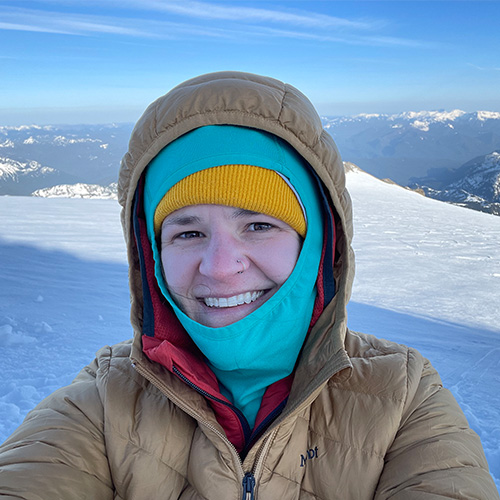
Keeley Ffrench
ffrenchk@uw.edu
Strengthening the Social Prescribing Pilot Project in Nanaimo, Vancouver Island, British Columbia
PRACTICUM SITE: Vancouver Island Social Prescribing Community of Practice
SITE SUPERVISOR: Dr. Adam Hoverman
DEPARTMENT: Global Health
FACULTY ADVISER: Dr. Donna Denno
I am a second-year MPH student within the Department of Global Health. For my practicum, I collaborated with the Vancouver Island Social Prescribing community of practice based in British Columbia, Canada. The aim of the pilot project was to enhance a working group of healthcare professionals who were seeking to establish or expand their social prescribing referral pathways. The team I was working with was dedicated to outreach, education, and promotion of social prescribing efforts, which culminated in a webinar series open to various healthcare practitioners across the Island. I created social marketing materials for members to disseminate best practices and to further their understanding of this recently created national framework.
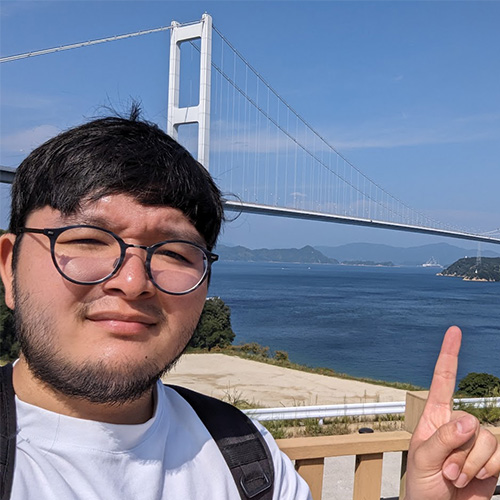
Kosuke Kume
kumek@uw.edu
Determining Public Automatic External Defibrillator Availability in King County
PRACTICUM SITE: Public Health – Seattle & King County, Emergency Medical Services Division
SITE SUPERVISOR: Dr. Christopher Drucker
DEPARTMENT: Epidemiology
FACULTY ADVISER: Dr. Hendrika Meischke
I am a current second-year MPH student in the Department of Epidemiology with an interest in Emergency Medical Services (EMS) and pre-hospital care. For my practicum project, I worked with Public Health - Seattle & King County, EMS Department’s Community Program section to create a dashboard that displays where registered public Automatic External Defibrillators (AEDs) are located. I collaborated with EMS’s AED program managers to make a dashboard to fit their data needs and to help guide decision-making around communities that need assistance since public AEDs provide better survival for people experiencing a cardiac arrest along with bystander CPR. Geographic information was gathered through geocoding addresses for AEDs, and information about cardiac arrest occurrences was also mapped to see where the need for AEDs is most for communities around the county and if the arrests occurred within a close radius of an AED.
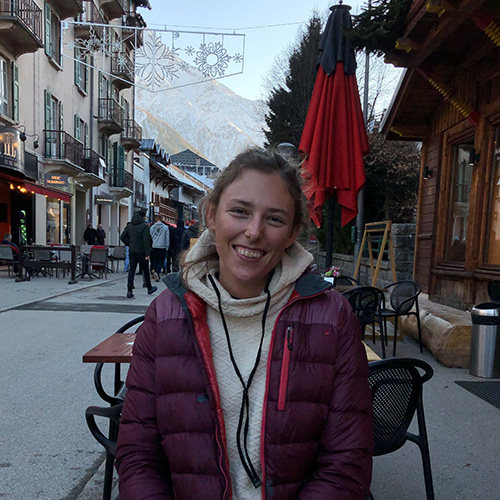
Leah Mortimer
mortimle@uw.edu
Understanding and Identifying Policy Solutions to the Imbalance Between Criminal Justice Spending and Health and Human Services Spending in King County
PRACTICUM SITE: Public Health – Seattle & King County
SITE SUPERVISOR: Jessica Jeavons
DEPARTMENT: Health Systems and Population Health
FACULTY ADVISER: Clarence Spigner
I am a second-year concurrent JD/MPH candidate who is interested in health policy. I have completed my first year of law school and am currently completing my MPH coursework before I go back to law school next year. My main academic interest is in using evidence-based public health solutions and research to inform law and policy with the goal of improving health and well-being outcomes in marginalized populations. I am passionate about studying the ways in which the law is and has been used to oppress people and the ways that it has and can be used to advance health equity.

Leilemah Aslamy
leileea@uw.edu
Genetic Autism Research in Children: Investigating Diversity and Understanding Parent Perceptions
PRACTICUM SITE: Seattle Children’s Autism Center
SITE SUPERVISOR: Dr. Emily Neuhaus
DEPARTMENT: Public Health Genetics
FACULTY ADVISER: Dr. Daniel Promislow
I am a second-year MPH-Public Health Genetics candidate interested in psychiatric and behavioral genetics and immigrant health. I completed my practicum with the SPARK Genetic Autism Research Study at the Seattle Children's Autism Center. I worked to develop a comprehensive literature review on parental perceptions of genetic autism research and a SPARK newsletter presenting recent research findings in a family-friendly manner. This project addresses one of the gaps in genetic autism research by presenting an understanding of the motivations and perceptions of genetic testing among parents as well as some ideas for investigating how to make the research more participant-driven.
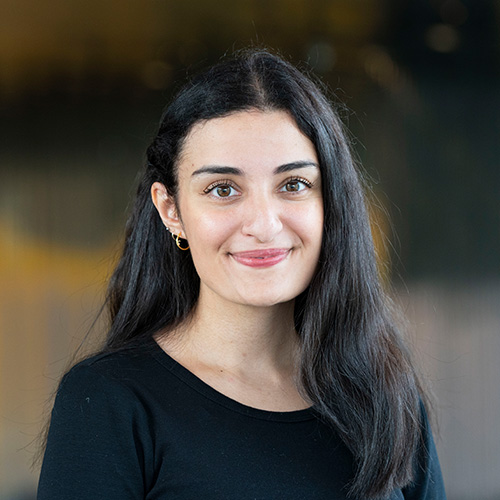
Lyda Ebadani
lebadani@uw.edu
Evaluating Affordability of Telehealth Medication Abortion Services in California, United States
PRACTICUM SITE: University of Washington Access, Delivered Research Initiative (Department of Family Medicine)
SITE SUPERVISOR: Anna Fiastro
DEPARTMENT: Epidemiology
FACULTY ADVISER: Mandy Fretts
I am a second-year MPH-Epidemiology candidate interested in working at the intersection of reproductive healthcare and nutritional epidemiology. I partnered with the University of Washington Access, Delivered Research Initiative to evaluate Aid Access, a telehealth service providing medication abortion to patients. As California constitutes 20% of total abortions in the United States and telehealth medication abortion is an alternative to expensive brick-and-mortar services, we found it imperative to assess its affordability in California. I studied the use of sliding scale payment for Aid Access telehealth medication abortion service among California residents and assessed if sociodemographic factors are associated with payment. Final practicum deliverables included an abstract accepted at the Western Medical Research Conference (WMRC), a press release, and presentation of findings to the research team and community partners.
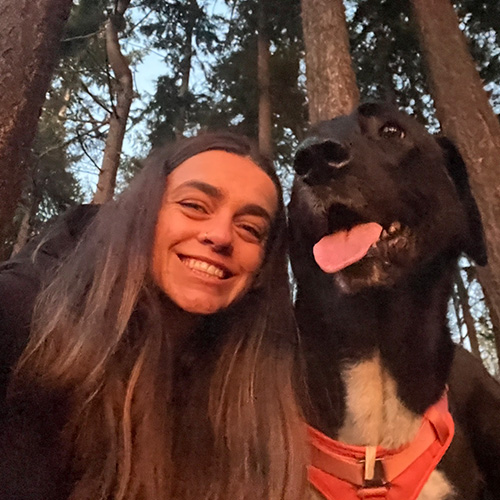
Makenna Wehmeyer
makennalwehmeyer@gmail.com
Assessment of Workplace Harassment and Conflict Resolution for Employees of Discover Your Northwest
PRACTICUM SITE: Discover Your Northwest
SITE SUPERVISOR: Heidi Walker
DEPARTMENT: Epidemiology
FACULTY ADVISER: Daniel Enquobahrie
I am an MPH Epidemiology Global Health student with research interests focused on the intersection of reproductive and psychiatric health epidemiology, specifically interpersonal/domestic violence among young women. My practicum worked in collaboration with Discover Your Northwest to assess and improve their current policies, procedures, and resources related to workplace harassment and conflict resolution. A baseline survey was created and sent out to employees, offering quantitative results from the Short Negative Acts Questionnaire (SNAQ) assessing workplace harassment and Conflict Management Climate (CMC) assessing workplace conflict management. Additionally, the survey offered optional qualitative responses for employees to provide suggestions for improvement and what has worked for them previously. Supplemented with research gained from a literature review and reviewing the current policies related to this subject matter in the Employee Handbook, we created two resource documents: (1) Harassment Resource Doc & (2) Conflict Resolution Resource Doc, as well as modified current policies and procedures for handling conflict resolution and reporting cases of harassment.
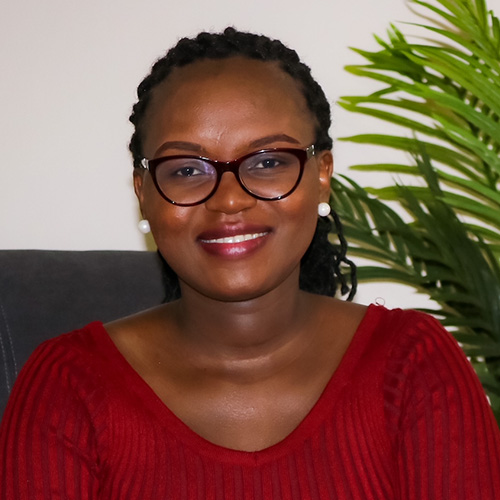
Marilyn Nyabuti
mnn3@uw.edu
Assessing the Adoption and Scalability of the SEARCH Youth (SY) Intervention by the Ministry of Health Clinics After Study Closeout
PRACTICUM SITE: Kenya Medical Research Institute (KEMRI)
SITE SUPERVISOR: Dr. James Ayieko
DEPARTMENT: Global Health
FACULTY ADVISER: Carey Farquhar
I am a second-year Master of Public Health (MPH) student with a keen interest in understanding the challenges faced by adolescents and youth seeking HIV prevention and treatment across different life stages. My practicum focused on a post-study assessment of the SEARCH Youth (SY) Intervention at Ministry of Health (MOH) clinics, where I evaluated the integration of SY components into routine care. This involved examining training, infrastructure, patient engagement, and ongoing monitoring. The assessment identified challenges, opportunities, and scalability possibilities, aligning the adapted intervention with UNAIDS 95-95-95 goals. Through documenting success stories and policy implications, I aim to inform stakeholders about MOH clinics' capability to sustain the SY Intervention, contributing to improved HIV care for this demographic.
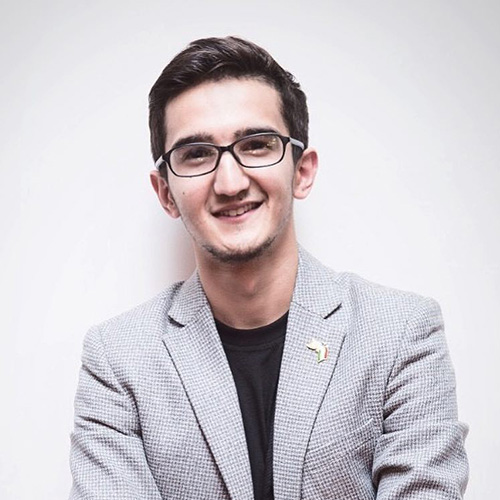
Mehroj Muhiddinov
mehrom@uw.edu
Informatics Savvy Health Organization Assessment implementation & Public Health Communications Management
PRACTICUM SITE: University of Washington, DIGI Initiatives Group at I-Tech (DIGI)
SITE SUPERVISOR: Anne Fox & Sonora Stampfly
DEPARTMENT: Global Health
FACULTY ADVISER: Nancy Puttkammer
I am a second-year MPH candidate from Tajikistan, specializing in Global Health. My practicum was split between the Digital Initiatives Group and I-TECH (DIGI), focusing on enhancing health information systems and communication strategies. Within the Digital Initiatives Group, my efforts were channeled into the Informatics-Savvy Health Organization (ISHO) project. Here, I contributed to the development of the Above Site-Level Ethiopia RedCap tool and also enhanced the visual design of various materials, ensuring clear and effective communication. At I-TECH, my responsibilities involved refining the strategic annual information document, and I authored a blog that highlighted the collaboration between Africa CDC and the University of Washington.
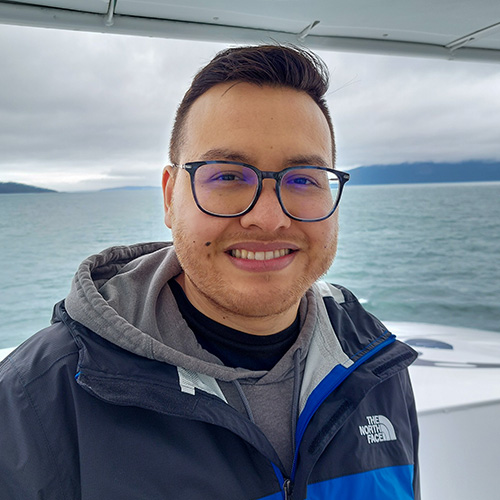
Miguel Mariscal
miguel12@uw.edu
Understanding the Healthcare Experiences of Spanish-Speaking Caregivers
PRACTICUM SITE: SEIU 775 Benefits Group
SITE SUPERVISOR: Sahar Banijamali
DEPARTMENT: Health Systems and Population Health
FACULTY ADVISER: Kate Causey
I am a second-year student in the Health Systems and Population Health Department. For my practicum, I worked with the SEIU 775 Benefits Group, a non-profit organization that provides training and healthcare benefits to unionized caregivers in Washington State. To learn how healthcare satisfaction could be improved among limited English-proficient caregivers, I was tasked with developing and testing a qualitative interview guide to better understand the healthcare experiences of Spanish-speaking caregivers. The interview guide included questions about their experiences with accessing healthcare and interpretation services. I wrote a report of the findings from the interviews conducted and presented it to the organization.
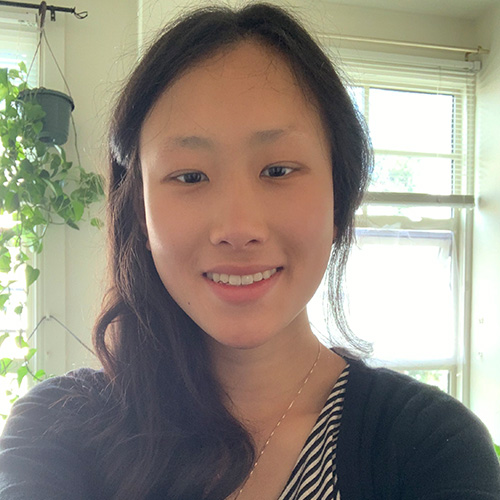
Mindy Dai
mdai5@uw.edu
Using Patient Reported Outcomes and Measures to Inform Future Practice
PRACTICUM SITE: Madison Clinic
SITE SUPERVISOR: Rob Fredericksen
DEPARTMENT: Epidemiology
FACULTY ADVISER: Steve Schwartz
I am a second-year MPH student in the Epidemiology track, and I am interested in infectious disease epi, mathematical epi, and substance abuse issues. My practicum took place at Madison Clinic at Harborview Medical Center, which provides primary care for people living with HIV. I had the opportunity to shadow and assist clinic staff in-person in their collection of patient-reported outcomes (PROs) questionnaires. Following this, I had the opportunity to use PRO data collected from Madison Clinic and seven other primary clinics serving people living with HIV across the United States to produce a) a report describing the relationship between falls and alcohol use and b) an abstract describing general characteristics and significant findings of over 100,000+ collected PROs.
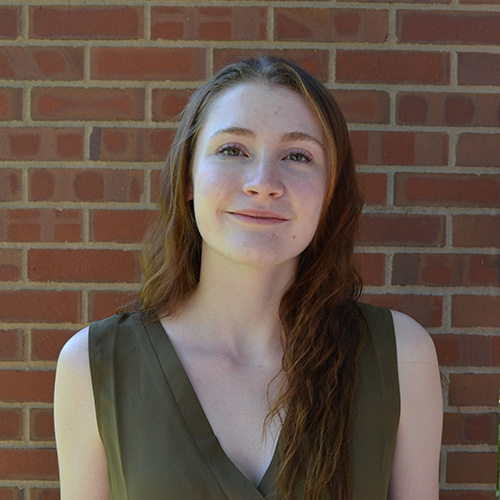
Molly Unsworth
unswom@uw.edu
The FIRST Clinic: Healthcare System Integration of Evidence-Based Advocacy to Prevent the Trauma of Family Separation
PRACTICUM SITE: FIRST Clinic
SITE SUPERVISOR: Taila AyAy
DEPARTMENT: Epidemiology
FACULTY ADVISER: Audrey Covner
I am a second-year MPH student in Epidemiology with a focus on maternal and child health. For my practicum, I worked with The FIRST Clinic, a medical-legal partnership that provides legal consultation and peer advocacy for new parents or pregnant people who are at risk of Child Protective Services intervention. Primarily working in the area of perinatal substance abuse, I collaborated with FIRST and the Washington State Department of Children, Youth, and Families to create a best-practice protocol and other educational tools for healthcare providers to educate them on changes in Washington state laws around suspected substance abuse in pregnancy and advocate for early outreach to FIRST. The educational tools and protocol were piloted at local hospitals in Snohomish County, with the long-term goal to prevent the unnecessary separation of infants and mothers.
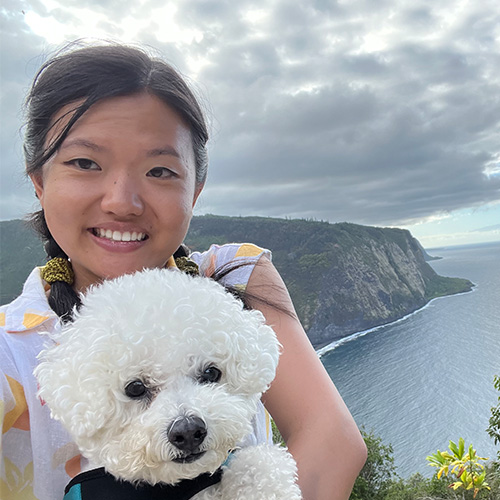
Nicole Stankovic
nc1997@uw.edu
Implementation of Social Housing (I-135)
PRACTICUM SITE: Real Change
SITE SUPERVISOR: Tiffani McCoy
DEPARTMENT: Health Systems and Population Health
FACULTY ADVISER: Amy Hagopian
My name is Nicole Stankovic, and I'm pursuing master's degrees in public health and piano performance. Always seeking to combine my passion for health and music, I hold undergraduate degrees in chemistry and piano performance. In collaboration with Dr. Clarence Spigner, Dr. Anne Searcy, and Dr. Steve Gloyd, my thesis focuses on music's relationship to health and disparities in music education in Seattle Public Schools. My background as a child of first-generation immigrants, along with having a sister with special needs, has fueled my commitment to addressing inequities and joining the HSPOP department. For my practicum, I explored housing systems abroad and housing's connections to health by working with Real Change on Seattle Initiative 135, the first citizens' social housing initiative to pass in the U.S. In the future, I aspire to establish a music school that welcomes students of all income levels, ages, and abilities.
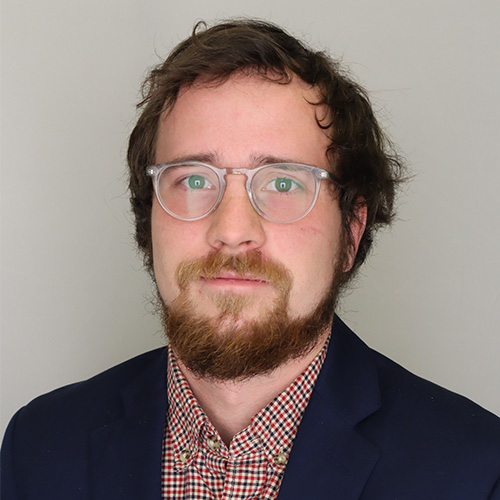
Noah Ostlie
ostlienj@uw.edu
Development of Court Observation Tool for HB 1227 Implementation and Evaluation
PRACTICUM SITE: Administrative Office of the Courts (AOC)
SITE SUPERVISOR: Arina Gertseva
DEPARTMENT: Health Systems and Population Health
FACULTY ADVISER: Audrey Covner
I am a second-year MPH candidate in Health Services and Population Health. In 2022, the WA state legislature passed the Keeping Families Together Act (HB 1227) to prevent and respond to maltreatment of young children, strengthen families, and advance the long-term health outcomes of children and their families. For my practicum, I partnered with the Administrative Offices of the Courts (AOC) with the ultimate goal of improving court proceedings for children and families by evaluating the implementation of and adherence to the new guidelines for dependency court case hearings set forth in HB 1227. This project seeks to achieve system change outcomes to prevent and respond to maltreatment of young children, strengthen families, and advance the long-term health outcome of children and their families. This goal is aligned with the AOC’s mission to provide equal justice under the law to all Washingtonians.
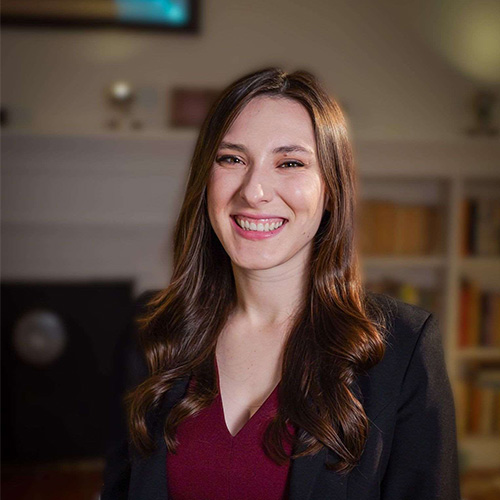
Rachel Rinehart
rrineh@uw.edu
Mental Health and Access to Care During a COVID-19 Lockdown in Rwanda
PRACTICUM SITE: Actors Rwanda
SITE SUPERVISOR: Sam Badege
DEPARTMENT: Global Health
FACULTY ADVISER:Dr. Lydia Chwastia
I am a fifth-year MD/MPH student in the Department of Global Health. When the COVID-19 pandemic caused Rwanda to lock down in early 2021, many individuals with serious mental illness lost access to peer experts and social support programs that were critical for their healthcare in the outpatient setting. The grassroots non-governmental organization, Actors Rwanda, and I worked to assess the needs of the population and determine whether a telehealth model using cellphones was a suitable alternative to in-person interactions.

Sabrina Hassan
sabrih2@uw.edu
Policy Co-Creation with Community Navigator
PRACTICUM SITE: Public Health – Seattle & King County
SITE SUPERVISOR: Jessica Jeavons and Ginna Hernandez
DEPARTMENT: Health Systems and Population Health
FACULTY ADVISER: Molly Firth
I am a second-year MPH candidate in Health Systems and Population Health with a concentration in Health Systems and Policy. I am passionate about exploring critical societal issues within health policy, racism, and social justice. For my practicum, I collaborated with Public Health – Seattle & King County, where I played a key role in supporting the policy team with the community navigators program. Community Navigators represent and serve various BIPOC communities around South King County. We actively engaged with them to discuss health priorities such as Climate Change, Housing, Health, Homelessness, and the impact of Racism on Population Health. The overarching goal of our team was to identify and integrate the policy options and priorities proposed by community navigators into a policy roadmap. During this project, I learned a lot about the community and appreciated their efforts in dealing with important health issues.
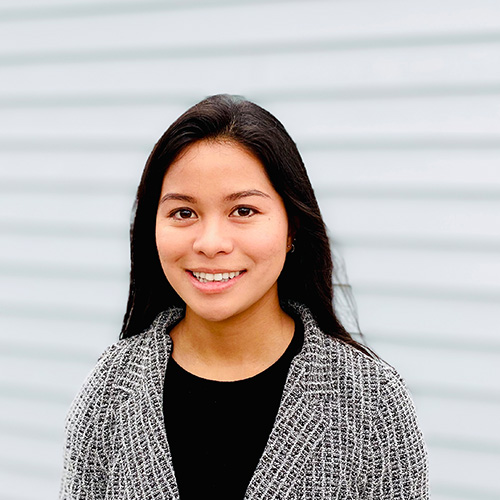
Sarah Domai
sdomai@uw.edu
Complex Care Patients: Analyzing Systemic Discharge Barriers and Navigating Washington’s Guardianship Laws
PRACTICUM SITE: Washington State Health Care Authority
SITE SUPERVISOR: Glory Dole
DEPARTMENT: Health Systems and Population Health
FACULTY ADVISER: Molly Firth
I am a second-year MPH student in the Health Systems and Population Health Department (Health Systems & Policy track). I am interested in leveraging effective science communication strategies to improve the health system care continuum and health outcomes. For my practicum, I worked with the Washington State Health Care Authority’s (HCA) Medicaid Contracts and Compliance, Medicaid Programs Division to create a data visualization showcasing the top 10 discharge barriers complex care Medicaid clients face during their transition from acute care facilities. The dashboard was compiled using de-identified data from biweekly Managed Care Organization reports collected since 2021. The practicum’s second component delved into the effects of Washington’s updated Guardianship Law on the care continuum. Qualitative interviews with key healthcare stakeholders informed the final thematic synthesis comprising the law's perceived impact on patient care.
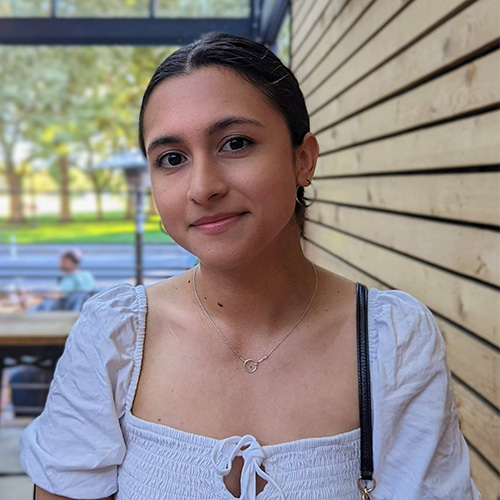
Sarah Garcia
sng00@uw.edu
Food Insecurity Among Kaiser Permanente Members: Landscape Analysis & Resource Database Evaluation
PRACTICUM SITE: Kaiser Permanente
SITE SUPERVISOR: Dr. Meagan Brown
DEPARTMENT: Epidemiology
FACULTY ADVISER: Dr. Mandy Frett
I am a second-year MPH Epidemiology student with interests in social epidemiology, food systems, health disparities, and the social determinants of health. I am particularly interested in working with underrepresented communities. For my practicum, I worked with Kaiser Permanente’s Social Needs Network for Evaluation and Translation (SONNET) to improve their understanding of food insecurity among its members. I summarized food insecurity at the state, county, and zip code levels in Washington and Oregon and among Kaiser members. Additionally, I identified community resources in Kaiser’s public resource database that address food insecurity in Olympia, Washington. In October, I performed a walking assessment of resource sites to assess the accuracy of the database’s results and analyzed photographs of sites for barriers and facilitators to accessing them. I summarized my methods and findings in a report to provide Kaiser with a more complete picture of food insecurity among its members and their neighborhoods.
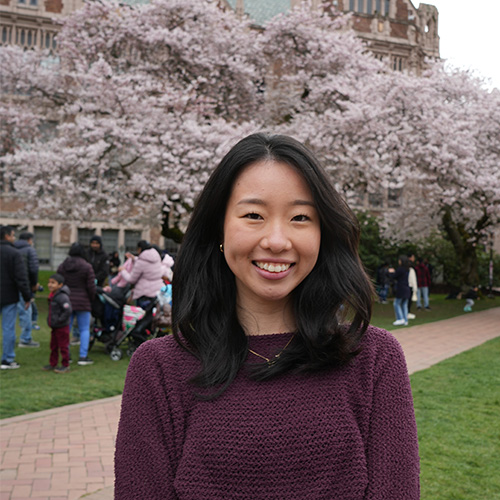
Sarah Yasuda
sarahya@uw.edu
Mapping Opioid Overdose in Grant County
PRACTICUM SITE: Grant County Health District
SITE SUPERVISOR: Diane Vivio
DEPARTMENT: Epidemiology
FACULTY ADVISER: Janet Baseman
I am a second-year MPH student in the Department of Epidemiology. During my practicum with the Grant County Health District (GCHD), we utilized ArcGIS to map out hospitalizations due to opioid overdoses to determine which zip codes might require more Narcan supplies and other lifesaving interventions for overdoses. We also used EMS data as well as overdose hospitalization data to perform descriptive epidemiology and determine who is more at risk. This information would be meaningful for informing Narcan vending machine placements, notifying and preparing EMS for potential overdose-related calls, offering valuable EMS insights for schools, and directing the allocation of opioid settlement dollars.
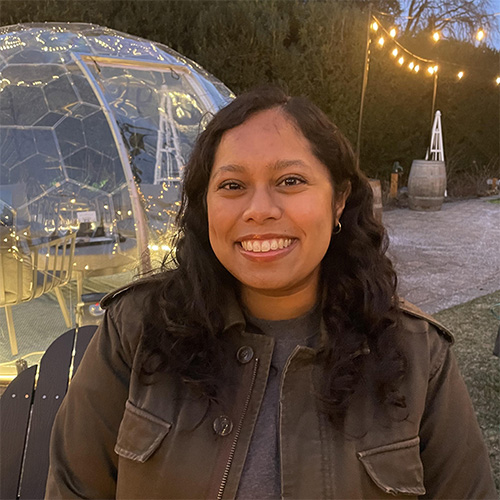
Shaan-Isabelle Shridhar
shaans@uw.edu
Evaluating the NGO Code of Conduct for Health Systems Strengthening
PRACTICUM SITE: Health Alliance International
SITE SUPERVISOR: Dr. Amy Hagopian
DEPARTMENT: Health Systems and Population Health
FACULTY ADVISER: Wendy Johnson
I am a second-year MPH student in the Health Systems and Population Health department and had the opportunity to complete my practicum with Health Alliance International (HAI). HAI is an organization that collaborates with local governments, health facilities, and community organizations to strengthen and enhance healthcare infrastructure. I worked with my classmate, Kaung Myat Thu, to evaluate the NGO Code of Conduct for Health Systems Strengthening, a document published by HAI in 2008 that provides a framework encouraging non-governmental organizations (NGOs) to build up public health systems rather than perpetuate harmful practices. We conducted a literature review, survey, and interviews to determine whether NGOs are still utilizing this document and its perceived relevance in the context of current global health challenges. Through learning from key informants in the survey and interview processes, I gained a better understanding of organization-level efforts NGOs are making to decolonize and strengthen global health systems.
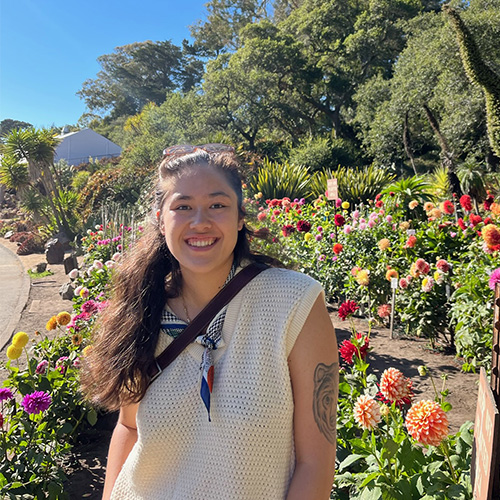
Tatiana Brown
browntm@uw.edu
Exploring Models of Co-Governance with the Just Futures Project
PRACTICUM SITE: Peoples Economy Lab
SITE SUPERVISOR: Faduma Fido
DEPARTMENT: Health Systems and Population Health
FACULTY ADVISER: Esther Min
I am a third-year, dual master’s student and serve as the Associate Program Director at the Campus Sustainability Fund. My work sits at the intersection between health, the economy, and the environment. At the Evans School of Public Policy, I focus on social and economic policy – exploring the connections between creating sustainable societies and regenerative economies. At the School of Public Health, I concentrate on Health Systems and Policy to better understand how social determinants of health (e.g., wealth, policy, built environment, racism, etc.) impact our health outcomes on the community and population levels. For my practicum, I joined the Just Futures Project (a collaborative effort between the People's Economy Lab, Front and Centered, and The Statewide Poverty Action Network) as their intern in June to work on different models of co-governance between agencies, community-centered organizations, and community members. It has been an amazing space to learn more about how to center community voices in policy design and use models like deliberative democracy and community assemblies to assert the community’s position at the table.

Tiara Ranson
tmr372@uw.edu
Landscape of Family Planning Counseling and Patient Flow in Kenya
PRACTICUM SITE: Kenyatta National Hospital
SITE SUPERVISOR: Dr. John Kinuthia
DEPARTMENT: Global Health
FACULTY ADVISER: Dr. Anjuli Wagner
I am a second-year MPH-Global Health candidate with interests in global maternal and child health, with a goal to implement programs that dismantle health disparities for Black women and children. My practicum was nested in an ongoing hybrid evaluation study, Mobile WACh EMPOWER, implementing a family planning counseling tool and two-way SMS messaging system. There is currently less information about how these tools might integrate into the clinical setting for women living with HIV, and a need noted by the research study staff to understand how family planning care is being delivered in HIV clinics. My practicum utilized process mapping, a methodology of implementation science practice, to examine and assess the patient journey of family planning services within HIV care at eight facilities associated with the Empower study. By following the patient flow (or process of care and management of the patient) and conducting interviews with providers to inform the maps, process mapping determined each clinic’s current flow and capacity for family planning integration. I am extremely grateful to have had the opportunity to learn from the Empower study team and experience working in an international setting.
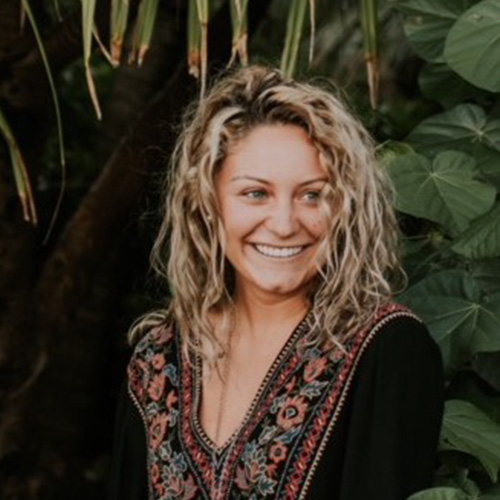
Trish Lanier
trishtia@uw.edu
Advancing Equitable Oral Health Initiatives through Community Health Data Analysis
PRACTICUM SITE: Tacoma-Pierce County Department of Health
SITE SUPERVISOR: Cam Solomon
DEPARTMENT: Online MPH
FACULTY ADVISER: Genya Shimikin
I am a second-year MPH student studying Health Systems and Population Health. My practicum experience involved working on the Pierce County Community Health Worker (CHW) Workforce Assessment, conducted in collaboration with the Tacoma-Pierce County Health Department, The Foundation for Healthy Generations, and the University of Washington Health Promotion Research Center. My practicum aimed to establish equitable oral health initiatives and assess changes in chronic disease prevention in Pierce County. The assessment revealed critical insights into the challenges faced by CHWs, including issues related to unpaid work and specific health concerns. I played a key role in analyzing quantitative and qualitative data by using biostatistics, understanding structural bias, and assessing population needs. The findings from the assessment will be used to advocate for resources benefiting CHWs and their communities. This practicum provided me with networking opportunities, skills in communication, and data analysis. I appreciate the support from various organizations and individuals involved in the completion of my practicum and final report.
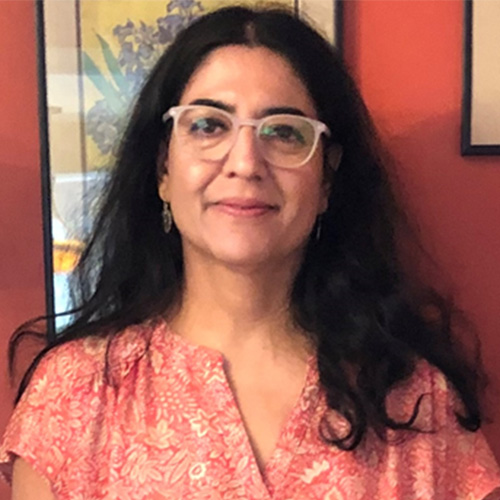
Viveka Raol
raolv@uw.edu
A Mixed-Methods Examination of Advanced Care Planning (ACP) in Hematopoietic Cell Transplant (HCT) Patients in Long-Term Follow up Care
PRACTICUM SITE: Fred Hutchinson Cancer Center
SITE SUPERVISOR: Dr. Megan Johnson Shen, PhD
DEPARTMENT: Public Health Genetics
FACULTY ADVISER: Dr. Joon-Ho Yu, PhD
Currently, I work at the Fred Hutch, Cellular Therapeutics department. My group performs HCTs and Immunotherapy Clinical Trials. Additionally, I am a second-year MPH candidate in Public Health Genetics, prior to which, I have an MS from UMASS and an MBA from the UW, Foster School of Business. Previously, I have worked in biologics research and process development in biotechnology. My practicum aim was to study how often HCT survivors in long-term follow-up at end-of-life have conversations about goals of care and ACP before death and if Genetic testing and communication played a role in ACP and/or treatment decisions. The knowledge gained from this study will inform future intervention development to increase engagement in and support around ACP among HCT survivors. Outside of work and school, I enjoy road biking on the Sammamish River Trail and traveling with my scholar husband Professor Dr. R. Charles Weller and our son Shiv Rajurs.

Yuhan Hsieh
wawa1207@uw.edu
Resource Finder Evaluation and Recommendations: Improving the financial, mental health, and living standards of home care workers
PRACTICUM SITE: SEIU 775 Benefits Group
SITE SUPERVISOR: Kate Causey
DEPARTMENT: Health Systems and Population Health
FACULTY ADVISER: Sahar Banijamali
I am a second-year MPH candidate in the Department of Health Systems and Population Health. My practicum project aimed to evaluate the Resource Finder provided by SEIU 775 Benefits Group and address the specific needs of home care workers. Home care workers currently face numerous challenges, including low wages, limited benefits, and high turnover rates. To tackle this issue, the SEIU 775 Benefits Group has developed a 'Resource Finder' service on its website to assist members in finding financial assistance, emotional support, healthcare, and training. However, low utilization suggests that the service may not fully meet the needs of home care workers. We conducted explanatory mixed-methods research to evaluate and explore more effective ways of connecting home care workers with the necessary resources. Our goal is to provide recommendations for improving the Resource Finder and ultimately enhance the financial, mental well-being, and overall living standards of home care workers.

Angel Cheung
acheung3@uw.edu
Firearm Injury Policy and Research Program Dissemination and Equity Tools
PRACTICUM SITE: Firearm Injury Policy Research Program
SITE SUPERVISOR: Laura Prater, PhD
DEPARTMENT: Epidemiology
FACULTY ADVISER: Steve Mooney, PhD
I am a second-year MPH student in Epidemiology interested in injury and violence prevention. I wanted to gain experience disseminating scientific communication with an emphasis on equity. Aligned with the needs and goals of the University of Washington’s Firearm Injury Policy Research Program (FIPRP), during my practicum, I created dissemination tools for social workers on firearm-related injury topics, as well as policy briefs on the FIPRP’s work. Furthermore, I conducted a review of firearm-related papers to create an equity tool showcasing the work of scholars and researchers coming from diverse backgrounds (e.g., people of color, women, sexual orientation/gender identity minorities, etc.) who are doing firearm-related prevention work across the United States.
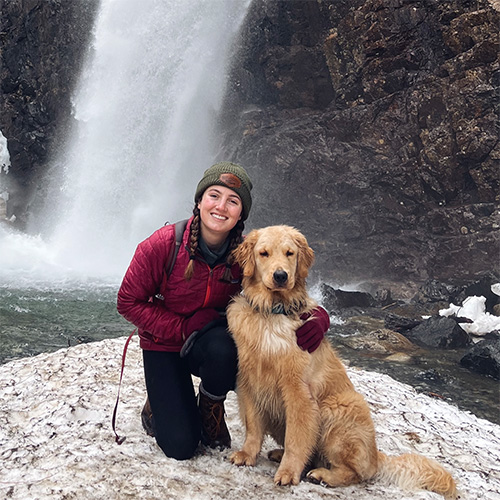
Ann Richey
arichey1@uw.edu
Sexual Violence Prevention for Washington State Schools
PRACTICUM SITE: Northwest Center for Public Health Practice
SITE SUPERVISOR: Megan Rogers
DEPARTMENT: Epidemiology
FACULTY ADVISER: Arjee Restar
I am a second-year MPH student in the Department of Epidemiology with an interest in violence and injury prevention epidemiology. For my practicum, I worked with the Northwest Center for Public Health Practice and the Washington Office of Superintendent of Public Instruction to develop materials for sexual violence prevention in middle schools. Sexual violence begins early, and it's important for middle school staff to understand how to prevent, detect, and respond to sexual violence among youth. My site deliverables included creating drafts of training materials and professional development resources for teachers and school staff to prevent and respond to sexual violence among youth.
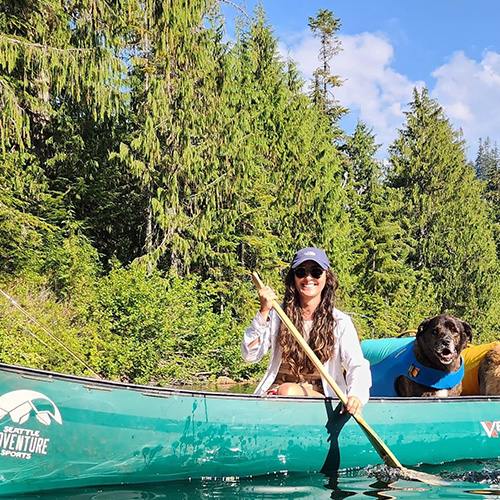
Kimberly Machado
machadok@uw.edu
Enhancing Reporting of Assault and Threatening Behavior Against Firefighters in Seattle, WA
PRACTICUM SITE: Seattle Fire Department
SITE SUPERVISOR: Christopher Lombard
DEPARTMENT: Health Systems and Population Health
FACULTY ADVISER: Clarence Spigner
I am a second-year MPH student in the Health Services Department. I've worked in the last three years as a research coordinator for the University of Washington, focusing on emergency medical services. Currently, there is no universal system that captures verbal and physical violent exposures against fire-based EMS responders. For my practicum, I collaborated with the Seattle Fire Department to enhance their reporting process for assaults and threatening behavior (ATB) experienced while on duty. I received input from stakeholders within the department, including safety chiefs, individual firefighters, and Local 27 (Seattle's Firefighter union). I also conducted a systematic review of literature on workplace violence against firefighters to inform this project. Working closely with the Chief of Safety, I helped develop a new ATB PowerApps tool, designed a feedback survey to review the current reporting tool, and compiled a concise quantitative report detailing incidents per unit.
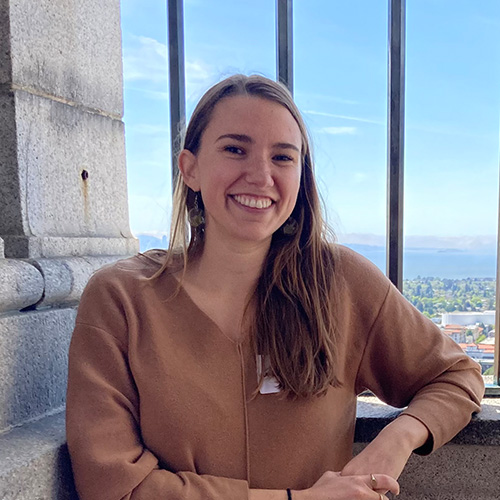
Leah Hardenbergh
lhbergh@uw.edu
Contributing to the Planning Stage of UW's Center of Excellence for Research on Domestic Violence
PRACTICUM SITE: University of Washington Center of Excellence for Research on Domestic Violence
SITE SUPERVISOR: Mary Kernic
DEPARTMENT: Epidemiology
FACULTY ADVISER: Daniel Enquobahrie
I am a second-year MPH student in the Epidemiology department on the maternal and child health track. For my practicum, I worked with Mary Kernic and an interdisciplinary team at UW to develop a plan for a Center of Excellence in Domestic Violence Research, Policy and Practice. Steps for the 6-month planning process of the Center were outlined in the state legislature, and a report is being presented back to relevant committees at the end of the 6 months. My deliverables were both focused on receiving input from external stakeholders on research priorities relating to domestic violence. The first was a report of all organizations involved in domestic violence work in Washington, including the populations they serve and contact information. The second was a resource on previous community-based participatory research that had been done in similar settings. These were used to contact external stakeholders and set up focus groups with survivors and those who work with survivors, which inform research priorities for the Center.
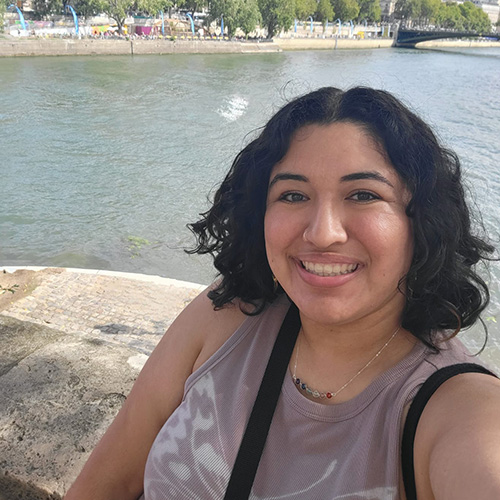
Adriana Perez Solorio
sharon37@uw.edu
Implementation of I-135: Possible Barriers to Implementation of Social Housing in Seattle
PRACTICUM SITE: Real Change
SITE SUPERVISOR: Tiffani McCoy
DEPARTMENT: Health Systems and Population Health
FACULTY ADVISER: Amy Hagopian
I am a second-year MPH student in the Health Systems and Population Health Department. My research interests include social determinants of health, mental health, and addressing health inequities among minority communities, including Latine and immigrant communities. I completed my practicum alongside another MPH student, Nicole Stankovic. For our practicum, we interviewed key stakeholders for the implementation of Initiative 135 for social housing in Seattle. Social housing is a model of affordable, publicly owned, mixed-income housing, and I-135 created the first social housing developer in Seattle. Our practicum’s goal was to identify possible barriers to the implementation of I-135 and to the success of the newly formed Seattle Social Housing Developer. To learn more about social housing in Seattle, you can visit: https://www.houseourneighbors.org/social-housing
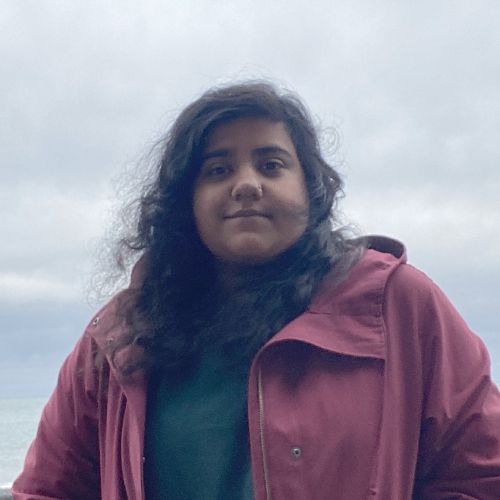
Ambar Ahmed
arahmed@uw.edu
Evaluating the Effectiveness of Community Microplanning on Knowledge, Attitudes and Practices on GBV in Timor Leste
PRACTICUM SITE: HAMNASA, Timor-Leste
SITE SUPERVISOR: Laurensius Amir
DEPARTMENT: Global Health
FACULTY ADVISER: Susan Thompson
I am a second-year MPH student in the Global Health Department. My primary interests include maternal and child health, and mental health. For my practicum project, I worked with HAMNASA, an organization based in Timor-Leste, formerly under the umbrella of Health Alliance International. My role was to evaluate the effectiveness of the Harmonia Activity, a USAID-funded project that utilized the People to People (P2P) approach in two municipalities, Liquica and Ermera, in Timor-Leste. One of the arms of the intervention was a Community Microplanning (CMP) program that involved the creation of local community groups with an inclusive, intergenerational coalition of community members to have open discussions on harmful social norms related to gender-based violence and to identify potential solutions. CMP groups consisted of local community leaders, and baseline and endline surveys were conducted to assess participant knowledge about GBV, including knowledge of types of GBV, the impact of GBV, appropriate behaviors to help a person experience violence, and domestic laws. My responsibilities included developing and executing a data analysis plan to compare results from the baseline and endline surveys for the CMP arm of the Harmonia project, and the formulation of actionable reports to assist the local team to expand the scope of the project.
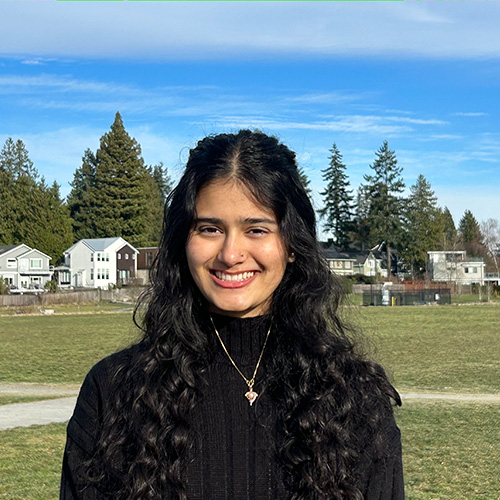
Ashley Thapa
athapa@uw.edu
Evaluating Respirator Fit-Testing, COVID-19 Outbreak Data, and Health Equity
PRACTICUM SITE: Washington State Department of Health
SITE SUPERVISOR: Catherine Connon
DEPARTMENT: Epidemiology
FACULTY ADVISER: Steven Hawes
I am a second-year MPH candidate in the Department of Epidemiology. I wanted to gain exposure to public health practice and apply my interests in infectious disease epidemiology, program evaluation, and disease prevention. For my practicum, I worked with the Occupational Health (OH) Team within the Healthcare-Associated Infections and Antimicrobial Resistance (HAIAR) program at DOH. My project aimed to evaluate the efficacy of the OH team in fit-testing long-term care (LTC) facilities in Washington from 2021-2023. This was done by cleaning, combining, and analyzing COVID-19 outbreak data with fit-test data, while incorporating the CDC/ATSDR Social Vulnerability Index (SVI) to assess the health equity of the program. The final products were maps created using ArcGIS capabilities within PowerBI of Washington State facilities that were fit-tested and had an outbreak, with an indication of the SVI of each neighborhood. Through this practicum, I gained valuable skills in data management and visualization.
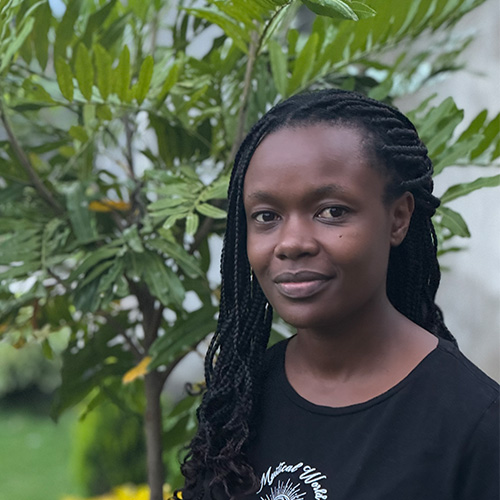
Brenda Oyaro
boyaro@uw.edu
Evaluation of a Sport-Based Youth Mental Health Intervention in Kenya
PRACTICUM SITE: LVCT Health
SITE SUPERVISOR: Robinson Karuga
DEPARTMENT: Epidemiology
FACULTY ADVISER: Susan Graham
I am currently a second-year MPH student in the Department of Epidemiology. My research interests include women's health and utilizing implementation science principles to strengthen health systems and improve mental health outcomes. During my practicum, I was primarily involved in the MindSKILLZ study, which aimed at educating adolescents about mental health and healthy coping skills. My main role was to evaluate the program's effectiveness by analyzing pre-intervention survey data and comparing it with post-intervention survey data to assess whether the intervention was useful to the target population. Additionally, I was tasked with developing referral guidelines for MindSKILLZ participants with mental health disorders, as well as drafting a community engagement strategy for mental health.

Brittany Udo
brittudo@uw.edu
Racial Equity Audit at the Washington State Department of Health, Office of Environmental Public Health Sciences
PRACTICUM SITE: Washington State Department of Health, Office of Environmental Public Health Sciences
SITE SUPERVISOR: Laura Johnson
DEPARTMENT: Health Systems and Population Health
FACULTY ADVISER: Clarence Spigner
I'm a second-year MPH student, coming from the Department of Health Systems and Population Health with a focus on health services. My interests include researching ways to help alleviate the health disparities that the Black population in the United States face and to shed light on specific health issues that plague the Black community. I got a chance to work with the Office of Environmental Public Health Sciences at the Washington State Department of Health and helped to conduct a racial equity audit with the goal of seeing the gap between where the office was with demonstrating racial equity in their office space/through their work and where they needed to be. I worked alongside another UW MPH student (Jenny Kim), and we used mixed-methods research to develop recommendations for the office to utilize.
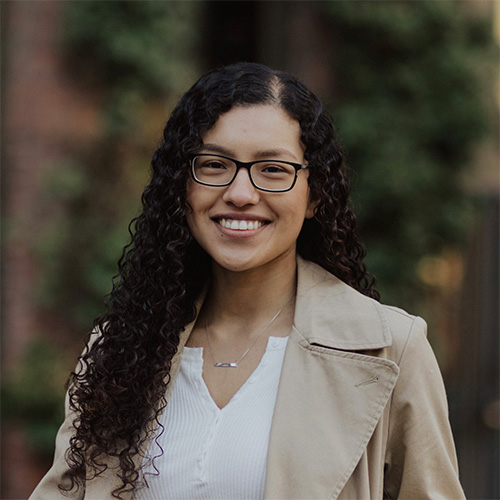
Celeste Garcia
celesg@uw.edu
Development of the Seattle Parks and Recreation Summer Food and Fitness Program
PRACTICUM SITE: Seattle Parks and Recreation
SITE SUPERVISOR: Joy House
DEPARTMENT: Health Systems and Population Health
FACULTY ADVISER: Peter House
I am a second-year MPH student in the Department of Health Systems and Population Health. I completed a practicum with Seattle Parks and Recreation, developing their summer food and fitness program. This program provides nutrition and fitness classes in communities disproportionately affected by obesity and places with limited access to nutritious food and physical activity opportunities. My role involved creating and implementing a needs assessment survey to gather information on residents' park usage, habits, activities, and preferences. I also identified and built partnerships with community organizations and developed pre- and post-surveys to evaluate the program. This opportunity allowed me to apply my public health knowledge to address health disparities through community engagement, program development, and evaluation.
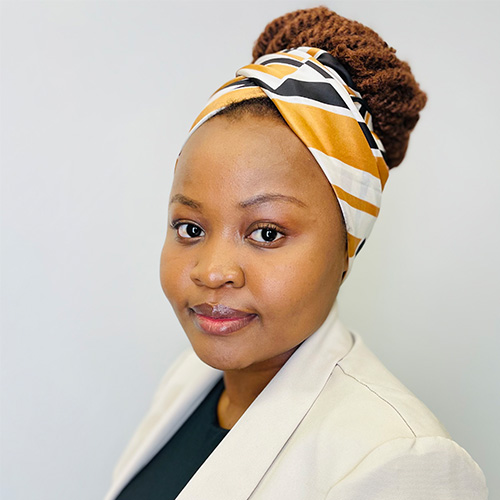
Diana Lalika
dlalika@uw.edu
Understanding Global Health: A Transformative Practicum with LAPIS
PRACTICUM SITE: The Learning for Action in Policy Implementation and Health Systems (LAPIS)
SITE SUPERVISOR: Dr. David Watkins
DEPARTMENT: Global Health
FACULTY ADVISER: Dr. Yanfang Su
I am a second-year MPH student interested in designing research projects and programs to address non-communicable diseases through strengthening healthcare systems, health policy, and digital health initiatives. For my practicum, I had the privilege of working as a Program Coordinator with the Learning for Action in Policy Implementation and Health Systems (LAPIS), a research and education hub that brings together interest and expertise in health policy and health systems in an international context under the Department of Global Health at the University of Washington. During this time, I developed case statements that helped secure a $20,000 grant for the high school students' internship program, spearheaded the establishment of a high school student internship program focused on scientific writing and evidence-based research, and contributed to the development of a certificate program in health systems for graduate students at UW. I also helped organize LAPIS seminar series events. This was a great opportunity to delve into the dynamics of designing and implementing public health initiatives for a diverse audience.

Isa Weiss
iweiss@uw.edu
An Evaluation of MedGlobal's Substance Use Rehabilitation Unit in Azaz, Syria
PRACTICUM SITE: MedGlobal
SITE SUPERVISOR: Dr. Denisse Pareja
DEPARTMENT: Health Systems and Population Health
FACULTY ADVISER: Dr. Amy Hagopian
I am a second-year MPH student in the Health Systems and Population Health program. For my practicum, I collaborated with another MPH student, Paing Htut, to evaluate MedGlobal’s substance use rehabilitation unit in Azaz, Syria. We first conducted a literature review to identify the factors contributing to high rates of captagon/fenethylline use in Northwest Syria and barriers to treatment in this context. We followed this by interviewing service providers from the substance use treatment unit about their experiences providing care. Using this data, we created a summary of program strengths and challenges and a list of recommendations for improving programming. MedGlobal will use this information to assess its programmatic impact and inform its future work in the region and in global substance use treatment efforts.
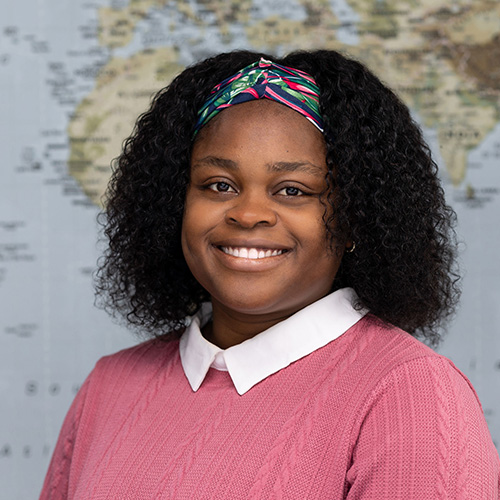
Jacinta Azie
jazie@uw.edu
Merrueshi Clinic: Capacities, Assets, and Needs Assessment
PRACTICUM SITE: Maasai Association, Merrueshi Village Clinic in Kenya
SITE SUPERVISOR: Kakuta Ole Mai Mai
DEPARTMENT: Global Health
FACULTY ADVISER: Carey Farquhar
I am a third-year MPH student in the Global Health department. My interests lie in the intersection of health research, policy, and implementation in improving the health outcome of women, adolescents, and children (WACh). For my practicum, I carried out a community needs assessment of the Merrueshi clinic, a village clinic founded and run by the Maasai Association (MA) in rural Kenya. I also evaluated the Teenage Empowerment Program of the Maasai Association. Utilizing a mixed methods approach, the findings will inform program planning and efficient budgetary allocation of funds into programs run by the MA.
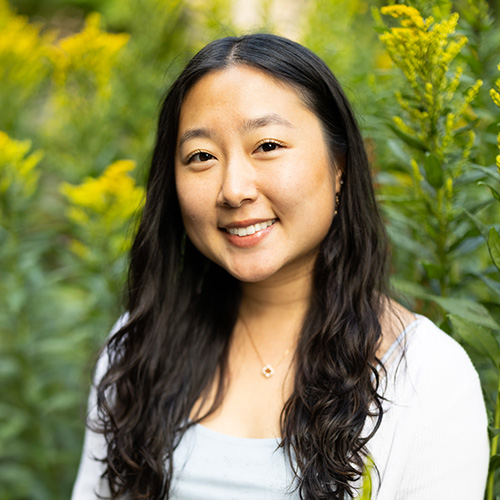
Jenny Kim
jkjenny@uw.edu
Racial Equity Audit at the Washington State Department of Health, Office of Environmental Public Health Sciences
PRACTICUM SITE: Washington State Department of Health, Office of Environmental Public Health Sciences
SITE SUPERVISOR: Laura Johnson
DEPARTMENT: Health Systems and Population Health
FACULTY ADVISER: Linda Ko
I am a second-year MPH candidate in Health Systems and Population Health with a concentration in Social and Behavioral Sciences. My research interests include health equity, immigrant health, and culturally adapting evidence-based interventions. For my practicum, I co-led a racial equity audit at the Washington State Department of Health, Office of Environmental Public Health Sciences (OEPHS). The main research question we sought to address was, 'Where is the OEPHS at in regards to anti-racist knowledge, attitudes, and values? What are the gaps, and where can we go from here?' We used a mixed-methods approach to address this question by administering a quantitative survey and leading qualitative focus groups. By collecting data, connecting with key stakeholders, and incorporating feedback, we ultimately developed recommendations and a work plan for the office. The recommendations will be strategically implemented throughout the next year at the office level to advance antiracist work.
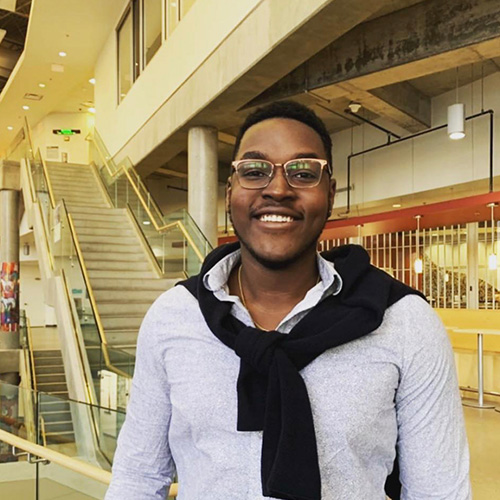
Joel Usiri
jusiri@uw.edu
Crossing the Digital Divide - Exploring the Impact and Cost-Effectiveness of Integrated Electrical Medical Records to Reduce Healthcare Worker Workload Within Antiretroviral Therapy Clinics in Malwai
PRACTICUM SITE: University of Washington, International Training and Education Center for Health (I-Tech)
SITE SUPERVISOR: Marrianne Holec
DEPARTMENT: Epidemiology
FACULTY ADVISER: Carly Feldacker
I am a second-year MPH candidate in the Department of Epidemiology with research interests in health economics, communicable diseases, and program evaluation and implementation. For my practicum, I partnered with The International Training and Education Center for Health (I-Tech) and the Lighthouse Trust in Malawi to assess the hidden costs of implementing an integrated electronic medical record (EMR) aimed at reducing healthcare worker (HWC) workload in antiretroviral therapy (ART) clinics. As part of an ongoing pre-launch assessment within a larger implementation science study of a Community-based ART REtention and Suppression (CARES) application, I explored the costs associated with manual data integration between the open-source CARES app and Malawi EMRs. Through a time-motion study we conducted in Malawi, we tracked HWC activities to estimate the potential cost savings provided by CARES to EMRs integration. The findings, in turn, will inform key decisions to determine the scalability of any EMR integration programs in the region.
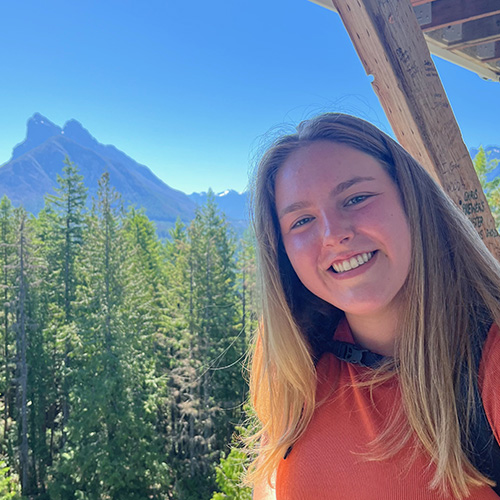
Lauren Perkins
lperk@uw.edu
Nutrition Education Program Development and Evaluation in Rural Vietnam
PRACTICUM SITE: HealthBridge Foundation of Canada
SITE SUPERVISOR: Behnoush Ahranjani, PhD
DEPARTMENT: Nutrition
FACULTY ADVISER: Anne Lund
I am a second-year MPH student within the Department of Nutritional Sciences. Professionally, I am interested in topics of food sovereignty, food literacy, food systems innovation, and community-based health promotion. I completed my practicum requirement over the winter quarter (2024) with the HealthBridge Foundation of Canada, whose mission is 'to work with partners worldwide to improve health and health equity through research, policy, and action.' My practicum experience was two-fold. It first involved project ideation and development to strengthen mothers’ and other caregivers’ infant and child feeding practices in Ethnic Minority Communities in rural Vietnam. This occurred by conducting extensive research and through collaboration with both the organization’s Canadian and Vietnamese offices to create a culturally sensitive logic model and subsequent Letter of Intent (LOI) to be submitted for potential project funding. Additionally, I supported the creation of an evaluation tool that will be used to assess a recently completed nutrition education program in Son La, Vietnam.
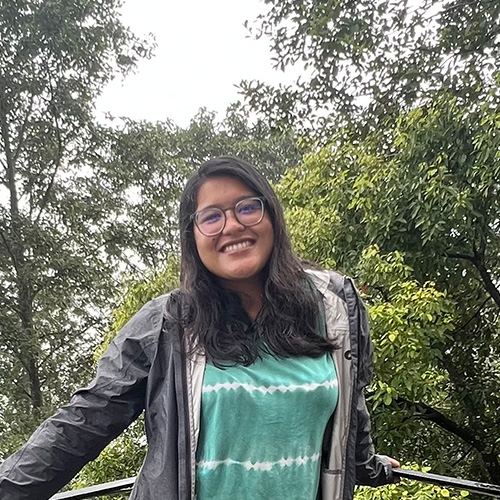
Mahima Joshi
mjoshi2@uw.edu
Leveraging Rhino for Rural Mental Health Outcome Surveillance
PRACTICUM SITE: Chelan-Douglas Health District
SITE SUPERVISOR: Jeffrey Taylor-Kantz
DEPARTMENT: Epidemiology
FACULTY ADVISER: Janet Baseman
I am a second-year MPH student in the Department of Epidemiology, interested in health disparities and data management. For my practicum, I worked with the Chelan-Douglas Health District in Wenatchee, WA, to create an emergency department for rural mental health surveillance. My practicum consisted of two parts. The first was comparing hospital emergency department visit data and RHINO (Rapid Health Information Network) because RHINO data is more accessible to obtain by the health district compared to hospital emergency department visit data. The second part of my practicum was conducting a descriptive analysis using RHINO data and creating a dashboard that visualized the analysis results.
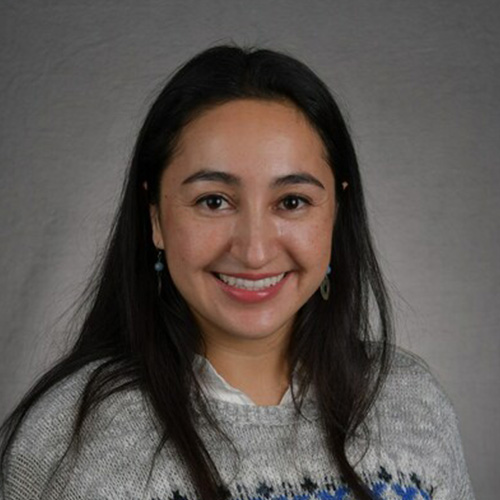
Maren Luján
marenal@uw.edu
Participatory Budgeting in Washington State
PRACTICUM SITE: Washington State Department of Health, Office of Environmental Public Health Sciences
SITE SUPERVISOR: Laura Johnson
DEPARTMENT: Global Health
FACULTY ADVISER: Dr. James Pfeiffer
I am a second-year joint MPH Global Health and PhD Medical Anthropology student. I’m interested in how engaged and participatory practices can better inform public health interventions. In the Spring of 2023, I had the opportunity to work with the Washington State Department of Health’s Office of Environmental and Public Health Sciences (OEPHS) to conduct research for their newly funded Participatory Budgeting (PB) program. As part of my practicum, I researched existing literature and other PB projects being implemented, paying particular attention to processes, structures, timelines, and budgets. I also worked with internal staff to learn about DOH procedures and regulations that would inform the development and implementation of a Washington State-led Participatory Budgeting process.
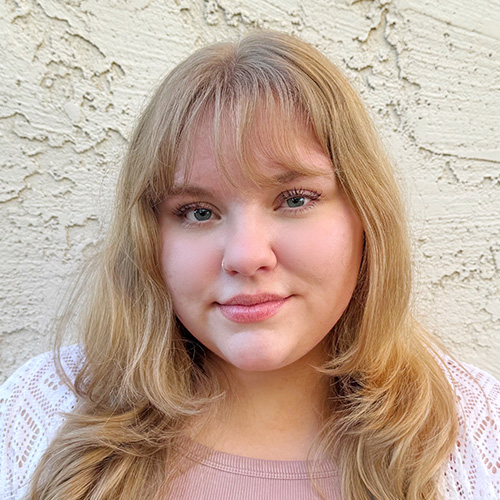
Olivia McCollum
oliviam3@uw.edu
Reviewing Data Quality Assessments in a Large-Scale Voluntary Medical Male Circumcision Program in Zimbabwe
PRACTICUM SITE: University of Washington, International Training and Education Center for Health (I-Tech)
SITE SUPERVISOR: Dr. Marrianne Holec
DEPARTMENT: Epidemiology
FACULTY ADVISER: Dr. Caryl Feldacker
I am a second-year MPH candidate in the Department of Epidemiology at the University of Washington. My research interests include maternal and child health, biomarker identification, sexually transmitted diseases, and comprehensive disease prevention programs in resource-limited settings. For my practicum, I worked on a mixed-methods review of data quality assessments (DQAs) for the ZAZIC voluntary medical male circumcision for HIV prevention program in Zimbabwe. My goal was to create a report that analyzed the strengths and weaknesses of the program using data collected from the quantitative and qualitative responses of 18 DQAs from various clinical sites throughout Zimbabwe from 2022 to 2023. In addition to the report, I also included my findings in the 5-year evaluation submitted to the CDC at the end of the funding cycle for the program. My practicum experience with this exceptional team has further solidified my passion for mixed-methods approaches and implementation science in resource-limited settings.

Paing Phyo Htut
phtut@uw.edu
Program Evaluation: MedGlobal Syria Substance Use Treatment Rehabilitation Unit
PRACTICUM SITE: MedGlobal
SITE SUPERVISOR: Denisse Pareja Valarezo
DEPARTMENT: Global Health
FACULTY ADVISER: Dr. Amy Hagopian
I am a second-year MPH student from the Global Health Department. My research interests primarily include infectious diseases such as STI/HIV and tuberculosis, health program evaluation, and the promotion of health equity. During my practicum, I had the opportunity to work on the evaluation of a substance use rehabilitation pilot program in Northwest Syria with the MedGlobal organization. This collaborative project involved developing an interview guide, conducting literature reviews, and performing key informant interviews with mental health service providers. My role included qualitative data coding and analysis, which concluded in a comprehensive report detailing the current state of substance use, the challenges faced in program implementation, and providing recommendations for future initiatives. This practicum has enriched my experience with international public health organizations, enhancing my skills in interprofessional communication, coordination, and teamwork, as well as qualitative research methods—crucial competencies for my career in public health. I am thankful to my faculty advisor, site supervisor, and practicum partner for their support and guidance throughout this valuable learning experience.

Sandra Urusaro
urusaros@uw.edu
Situation Assessment to Inform Strategic Planning of Elizabeth Gregory Home (EGH): Qualitative Approach
PRACTICUM SITE: Elizabeth Gregory Home
SITE SUPERVISOR: Ally Baerh
DEPARTMENT: Global Health
FACULTY ADVISER: Dr. Amy Hagopian
I am a second-year MPH student in Global Health, concurrently pursuing a Graduate Certificate in Global Health of Women, Adolescents, and Children (Global WACh). As a public health practitioner with a nursing background, I bring expertise in health programs management, particularly in global/public health implementation. My primary focus is on enhancing health outcomes, optimizing care systems, and resource utilization for resilient health systems with a commitment to social justice and equity, specifically for women, adolescents, children, and marginalized communities. During my practicum at Elizabeth Gregory Home (EGH), a non-profit providing a safe refuge for single women experiencing homelessness in Seattle, I collaborated with Dr. Hagopian and Ms. Baerh. Employing qualitative methods, specifically individual interviews of key stakeholders (clients, staff, and board of directors), we aimed to gather and understand stakeholders’ perspectives and synthesize their ideas for inclusion in the development of EGH’s new strategic plan. My role was to conduct interviews with the women receiving services at EGH, rapidly analyze results, and provide actionable recommendations to inform the organization’s new strategic plan. This experience deepened my understanding of social determinants of health and allowed me to apply analytical skills for rapid and data-informed recommendations in strategy and implementation.
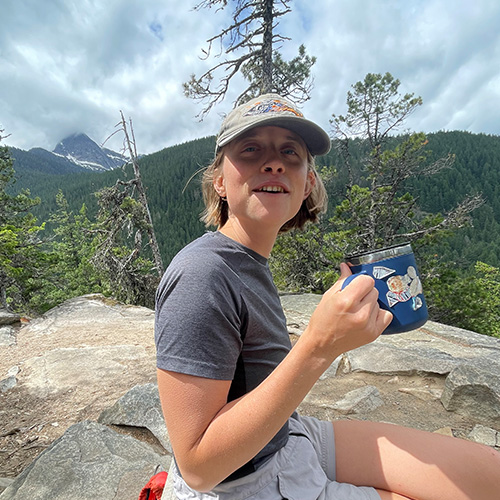
Tara McCoy
taralm15@uw.edu
Merrueshi Clinic Community Capacities, Assets, and Gaps Assessment
PRACTICUM SITE: Maasai Association, Merrueshi Village Clinic in Kenya
SITE SUPERVISOR: Kakuta Ole Maimai
DEPARTMENT: Global Health
FACULTY ADVISER: Dr. Carey Farquhar
I am a second-year MPH student in the Department of Global Health. I am interested in the use of qualitative methods for global health program planning, design, implementation, and evaluation. For my practicum, I worked with the Maasai Association and the Merrueshi Clinic to conduct a mixed-methods community assets, capacities, and gaps assessment. I used clinic registry data, as well as key informant interviews with clinic staff and focus group discussions with women attending the clinic, to better understand health trends in the community and the clinic's current capacities and challenges. This data was used to inform a set of recommendations for the Maasai Association and the clinic for continued, sustainable operations.

Tenney Davis
tendavis@uw.edu
Evaluation of the Implementation of the Keeping Families Together Act
PRACTICUM SITE: Administrative Office of the Courts
SITE SUPERVISOR: Arina Gertseva
DEPARTMENT: Health Systems and Population Health
FACULTY ADVISER: Linda Ko
I am a second-year MPH student in the Health Systems and Population Health department. For my practicum, I partnered with the Administrative Office of the Courts to support their long-term project to evaluate the effectiveness of the implementation of HB 1227. To monitor the implementation of HB 1227, we observed shelter care court hearings before and after the implementation of the bill. A large part of my practicum revolved around testing the court observation tool that was developed to evaluate shelter care hearing compliance with HB 1227. A paper was written on our observation tool development process that was sent to the Washington State Center for Court Research and the Family and Youth Justice Programs. We also gave a presentation at a Family and Juvenile Court Improvement Program (FJCIP) meeting to inform FJCIP coordinators and judicial commissioners on the tool development process and the status of the evaluation project.
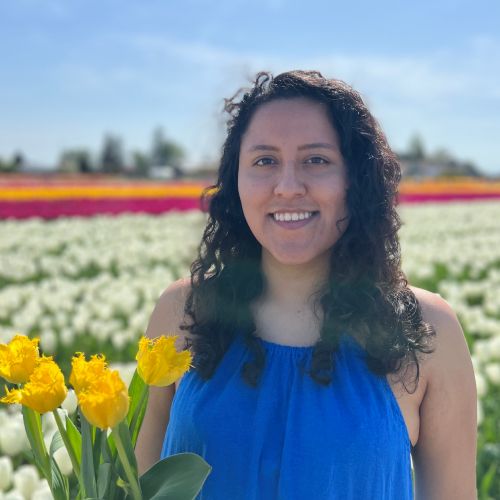
Arantxa Sanchez Boluarte
aransb21@uw.edu
An Examination of Stroke Outcomes Among English and Non-English Speakers, with a Focus on Spanish Educational Material Development
PRACTICUM SITE: Harborview Medical Center
SITE SUPERVISOR: David Tirschwell
DEPARTMENT: Global Health
FACULTY ADVISER: Joseph Zunt
I am a second-year MPH candidate in the Department of Global Health. I am interested in studying neurological diseases and access to healthcare services. During my Practicum, I undertook an examination of stroke outcomes within both English and non-English speaking populations at Harborview Medical Center. The project involved a descriptive and analytical approach to understanding stroke-related disparities in English and non-English speakers. Subsequently, I applied this knowledge to create tailored stroke educational materials in Spanish for a healthcare institution in Peru. My practicum experience not only deepened my understanding of stroke outcomes but also allowed me to contribute meaningfully to health education in a diverse linguistic community. This project underscores my commitment to fostering health equity and highlights the practical application of my skills in program planning, implementation, and evaluation within a global health context.
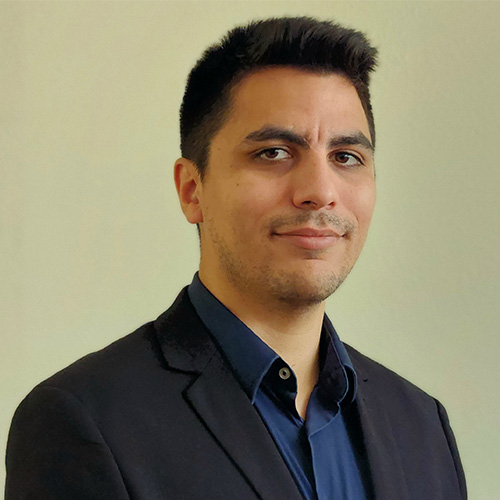
Augusto Ferraris
aferra@uw.edu
Education and Outreach to Older Community-Dwelling Individuals to Optimize Older Adults’ Medication Use and Promote Healthy Aging
PRACTICUM SITE: Plein Center for Geriatric Pharmacy Research, Education and Outreach
SITE SUPERVISOR: Dr. Abby Winter
DEPARTMENT: Epidemiology
FACULTY ADVISER: Dr. Amanda Phipps
I am a second-year MPH student at the University of Washington. My previous training as a physician and internal medicine specialist (University of Buenos Aires, Argentina) inspired my mission to improve health outcomes for older adults, especially those with cognitive impairment and dementia. For my practicum, I worked with the Plein Center for Geriatric Pharmacy Research, Education, and Outreach. This organization focuses on improving health outcomes for older adults by educating and empowering patients to better manage their medications. I worked alongside faculties from the UW Pharmacy School to develop and test surveys that assessed medication use practices. We adapted validated tools to the particular needs of residents at the Era Living Community, a retirement community for older patients. I delivered an educational talk, and we tested the survey with those who volunteered to participate. The results of this preliminary study may inform a larger-scale survey to tailor educational efforts and medical interventions to the Era Living community.
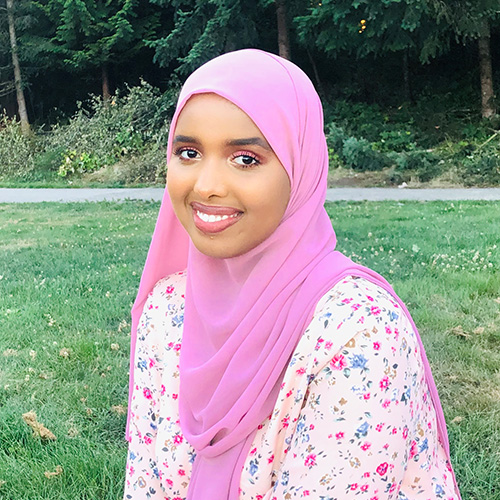
Ayan Ali
ayana5@uw.edu
Somali Health Board & WCAAP Vaccine Hesitancy Project
PRACTICUM SITE: Somali Health Board
SITE SUPERVISOR: Dr. Ahmed Ali
DEPARTMENT: Global Health
FACULTY ADVISER: Kate M. West
My name is Ayan, and I am a second-year MPH student in the Global Health department. To fulfill my MPH practicum requirements, I worked on a community-based project hoping to address vaccine hesitancy among local Somali immigrant and refugee communities living in South King County. The community partner organization that I worked with on this project was the Somali Health Board (SHB). The main goal of this project was to understand the level of vaccine hesitancy within our local Somali community here in South King County and, in turn, create opportunities to address the root causes of said hesitancy. My main role for this project was to facilitate and analyze the family interviews and create content for both the community and healthcare provider webinars to address the key themes from the interviews. Overall, I found this practicum project to be a great learning opportunity that helped me build both personal and professional relationships. It was a great opportunity to apply what I have learned in my MPH coursework to address some portion of my community’s health needs.

Celia Gorbman
cgorbman@gmail.com
Developing an Educational Framework: Integrating Restorative Justice Principles for Recidivism Mitigation
PRACTICUM SITE: Multifaith Coalition for Restorative Justice
SITE SUPERVISOR: Audrey Covner
DEPARTMENT: Epidemiology
FACULTY ADVISER: Steve Schwartz
I am a second-year MPH student in the Department of Epidemiology. I have a background in neurobiology, biochemistry, and public health. I am passionate about evidence-based healthcare and serving underserved communities. I worked with the Multifaith Coalition for Restorative Justice to conduct a literature review on restorative justice practices, creating a comprehensive curriculum for incarcerated individuals. This curriculum focuses on the intersection of restorative justice with religions, historical contexts, and data-driven insights, aiming to provide valuable educational resources within the prison system.
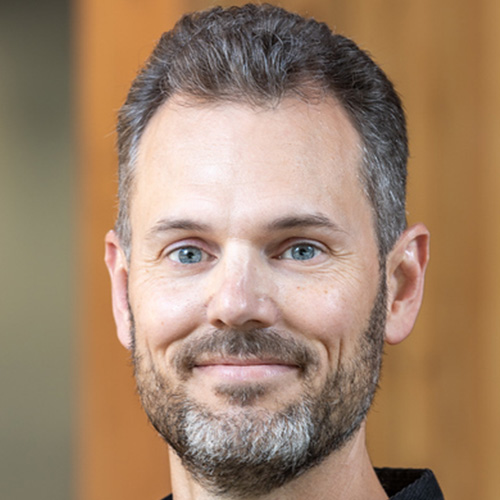
Christopher Barnes
chris24b@uw.edu
Thriving Despite the Chaos: Public Health Education for Shiftwork
PRACTICUM SITE: Seattle, Washington
SITE SUPERVISOR: Els Van Der Helm
DEPARTMENT: Environmental and Occupational Health Sciences
FACULTY ADVISER: Marissa Baker
I am a second-year MPH student in Environmental Health. I am interested in how work experiences influence employee well-being. Historically, my focus has been on the relationship between sleep and work, but I have more recently expanded my focus to include the broader concept of human sustainability. For my practicum, I partnered with Els van der Helm to generate and deliver new educational content about the effects of shift work. Shift work entails schedules that typically do not line up well with natural human circadian rhythms, producing issues with regards to sleep/wake regulation and downstream effects on both employee health and work outcomes. In the content I developed and delivered, I delineated the physiological reasons that shift work influences sleep/wake rhythms, how this influences employee health, how it influences work outcomes, and strategies for how to address these effects for both individuals and workplaces more broadly.
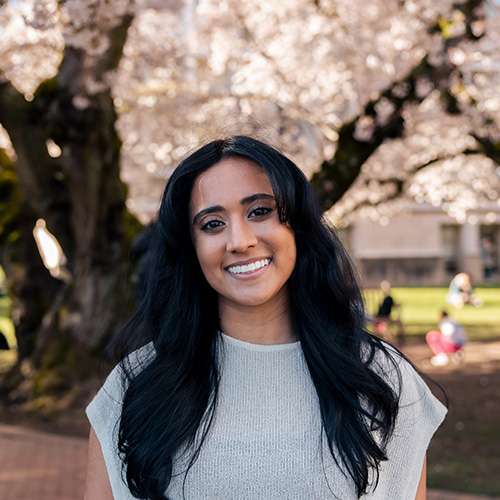
Ciera Babbrah
cbabbrah@uw.edu
Community Health Education: Campaign Marketing and Program Development
PRACTICUM SITE: Elevated Co.
SITE SUPERVISOR: Neshe' Conley
DEPARTMENT: Health Systems and Population Health
FACULTY ADVISER: Clarence Spigner
I am a second-year MPH student in Health Systems and Population Health. For my practicum, I worked with Elevated Co., an organization dedicated to promoting community health through education, awareness, program development, and program evaluation. I assisted with the implementation of multiple health awareness campaigns, creating digital material for Black maternal mortality and community mental health. Additionally, I spearheaded the initial development of NavigateHealth Refugees, an initiative targeting health literacy among refugee women in the Dallas-Fort Worth area. Through this practicum project, I gained valuable experience in health communication and program development, and I look forward to applying these skills in my future work in public health programming.
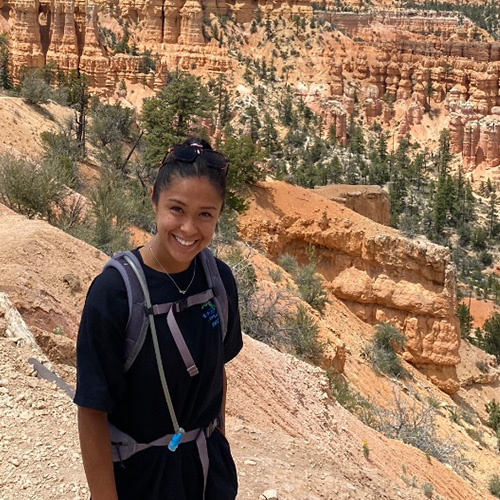
Elli Moon
egmoon2@uw.edu
Health Literacy Within Education Programs at Sea Mar Community Health Centers
PRACTICUM SITE: Sea Mar Community Health Centers
SITE SUPERVISOR: Justice Kurihara
DEPARTMENT: Epidemiology
FACULTY ADVISER: Steve Schwartz
I am a second-year MPH candidate within the Department of Epidemiology. For my practicum, I partnered with Sea Mar Community Health Centers to support ongoing efforts to further enhance patient-provider communication within the Health Education program. The Health Education team facilitates individual and group sessions for patients to learn about and manage their various health conditions, with patients who are predominantly not native English speakers. To increase linguistically and culturally appropriate communication within these visits, I conducted an internal review of current program processes, supported a grant proposal, and developed organizational recommendations. Thank you to the Sea Mar team for welcoming me and supporting my learning through this experience.
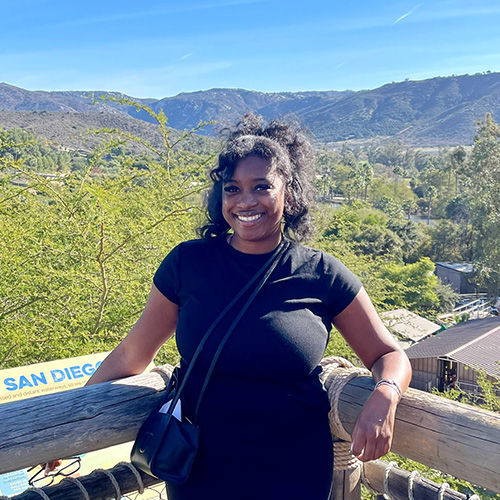
Kendra Canton
cantonk@uw.edu
Developing a Youth Advisory Council for the National Pediatric Preparedness Network - Seattle Children’s Regional Hub
PRACTICUM SITE: Seattle Children's Hospital
SITE SUPERVISOR: Malia D'Alio
DEPARTMENT: Health Systems and Population Health
FACULTY ADVISER: Clarence Spigner
I grew up in Spokane, WA, and graduated with a Bachelor of Arts in Medical Anthropology and Global Health from UW. I am a current second-year MPH student in the Health Systems and Population Health Department. I am passionate about improving health equity and the quality of care for underrepresented communities through education, advocacy, and research. For my practicum project, I assisted the Seattle Children’s PPN with the beginning stages of council and curriculum development for their Youth Advisory Council (YAC). The Seattle Children’s PPN wanted to understand the need for a YAC, gain insight into the needs of each community stakeholder, and determine which health topics would be selected to educate youth during the curriculum training sessions. During my practicum, I created a summary of community stakeholder insight engagement, designed a curriculum training outline for the YAC, and presented my practicum findings to the Seattle Children’s PPN members.
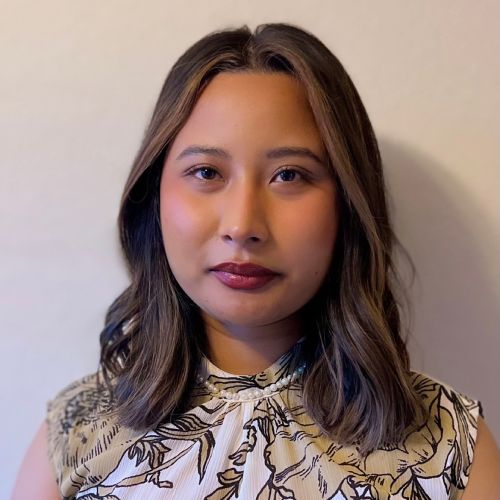
Lasata Shrestha
lasata@uw.edu
Feedback Collection from Caregivers and Community Health Workers Post Implementation of Interventions
PRACTICUM SITE: VillageReach
SITE SUPERVISOR: Jocelyn Powelson
DEPARTMENT: Epidemiology
FACULTY ADVISER: Grace John-Stewart
I am a second-year MPH in Epidemiology student and a research assistant for the UW START Center. My research interests include infectious disease epidemiology, immunology, and health systems in low-resource settings. I worked with VillageReach's Research, Experience, and Learning team to design a survey to assess the facilitators and barriers of vaccination in Malawi using KoboToolKit. Additionally, I collaborated with local Malawian stakeholders to ensure the suitability of those tools. I also wrote Standard Operating Procedures and other documents for the data collection system to be used by people in the field, i.e. community health workers and local stakeholders.

Lydia Bukonde
lydiab6@uw.edu
Focus Outreach Intern
PRACTICUM SITE: Harborview Medical Center
SITE SUPERVISOR: Olivia Hood
DEPARTMENT: Global Health
FACULTY ADVISER: Ahoua Kone
I am a second-year MPH student in Global Health. I worked with the FOCUS program, an HIV and HCV screening and linkage to care for vulnerable populations within King County. In my role, I developed culturally sensitive educational materials on HIV and HCV for King County's immigrant and homeless communities, promoting awareness and prevention. Utilizing UW Medicine's social media, I facilitated the dissemination of these materials. Additionally, I conducted needs assessments through various training programs to identify healthcare access gaps. Based on insights from the assessments, I proposed intervention plans to address prevalent issues. Furthermore, I created a visual report summarizing the landscape of HIV and HCV in King County's immigrant community. Finally, I created a communication plan for HIV Awareness Month.
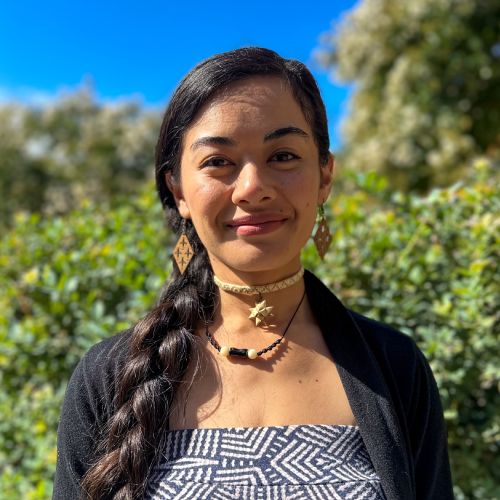
Marie Perez
map54@uw.edu
Critical What? - Exploring Equity Issues with Youth Filmmakers
PRACTICUM SITE: Critical What?
SITE SUPERVISOR: Dr. Patricia Boiko
DEPARTMENT: Health Systems and Population Health
FACULTY ADVISER: Audrey Covner
Critical What? is a documentary project that presents a student-centered point of view on equity issues. Critical What? empowers Washington youth ages 10-15 to tackle equity issues with the tools of media literacy and critical thinking. The overall goal of the project is to emphasize how these issues influence the social determinants of health impacting these kids’ lives. My role in the project was to develop a lesson plan covering media literacy and equity issues and to then teach the lesson plan to all the youth filmmakers. The youth filmmakers explored equity issues that include social determinants of health. The Critical What? Production Team and myself guided the youth filmmakers as they researched and produced documentaries on issues that they chose themselves based on what they observed in and around their neighborhoods, schools, and throughout their broader communities. Documentary topics included houselessness, education disparities, women’s safety, and more.

Timilehin Toye
timitoye@uw.edu
Planning and Introduction of Typhoid Conjugate Vaccine (TCV) in Nigeria
PRACTICUM SITE: PATH
SITE SUPERVISOR: Aziza Mwisongo
DEPARTMENT: Global Health
FACULTY ADVISER: Rabi Yunusa
I am a second-year Master of Public Health (MPH) student specializing in global health. For my practicum, I worked with the Policy Access and Introduction team at PATH’s Center for Vaccine, Innovation, and Access, based in Seattle, Washington. Specifically, I was involved with the TyVac consortium, contributing to the planning phase for the introduction of the Typhoid Conjugate Vaccine (TCV). My role within the consortium focused on supporting the team in the development of an action plan for the introduction of TCV in Nigeria. This plan is part of the consortium's broader mission to assist countries in the successful implementation of the TCV vaccine. I actively participated in the drafting of strategic documents crucial to the project. These documents are intended for use by the government in Nigeria to garner support from stakeholders, including GAVI. Overall, my practicum experience provided me with a deep understanding of the considerations involved in introducing vaccines on a global scale, particularly within the context of the TyVac consortium's efforts in Nigeria.